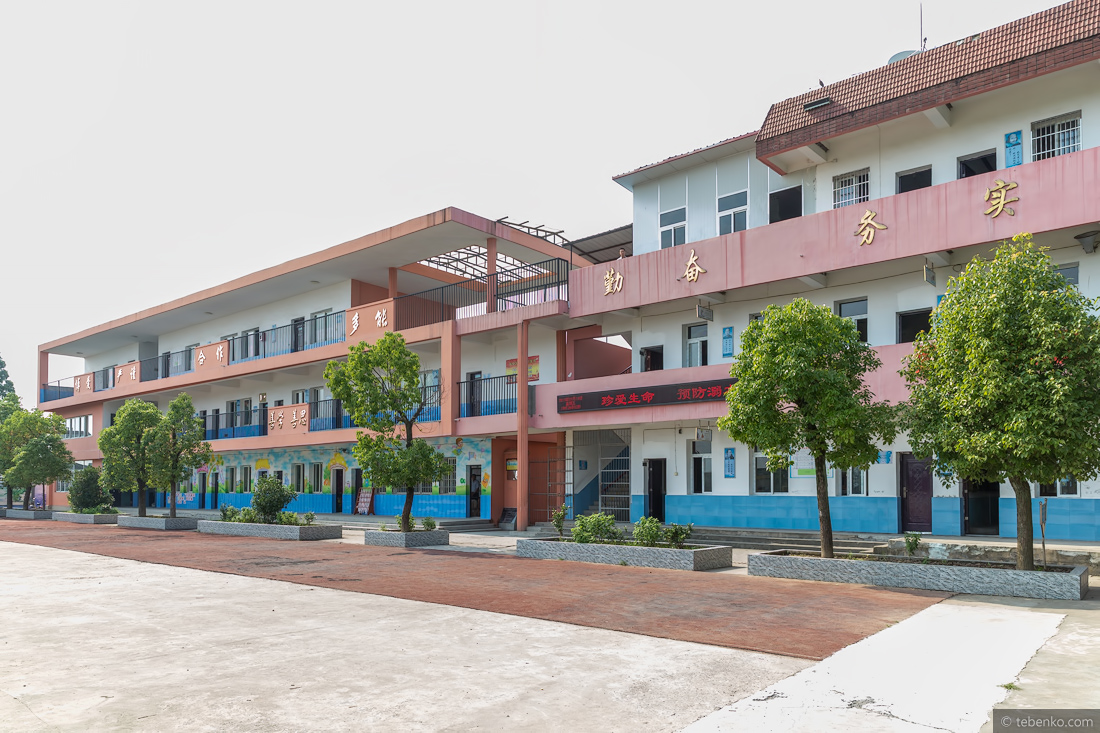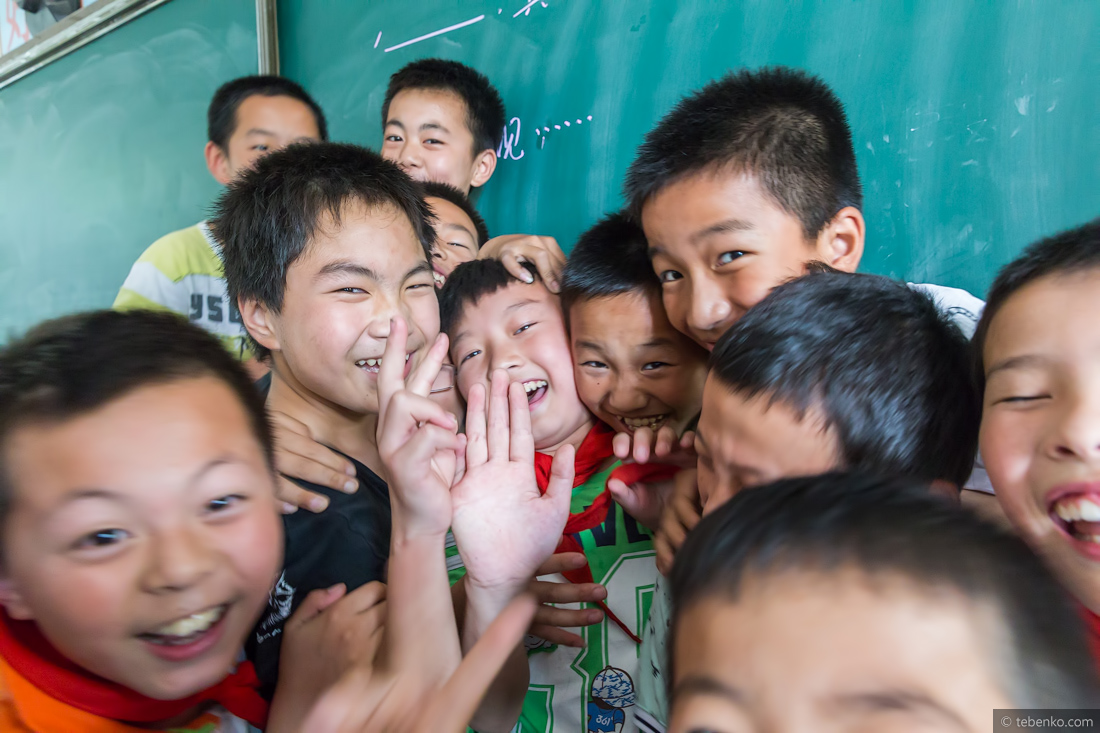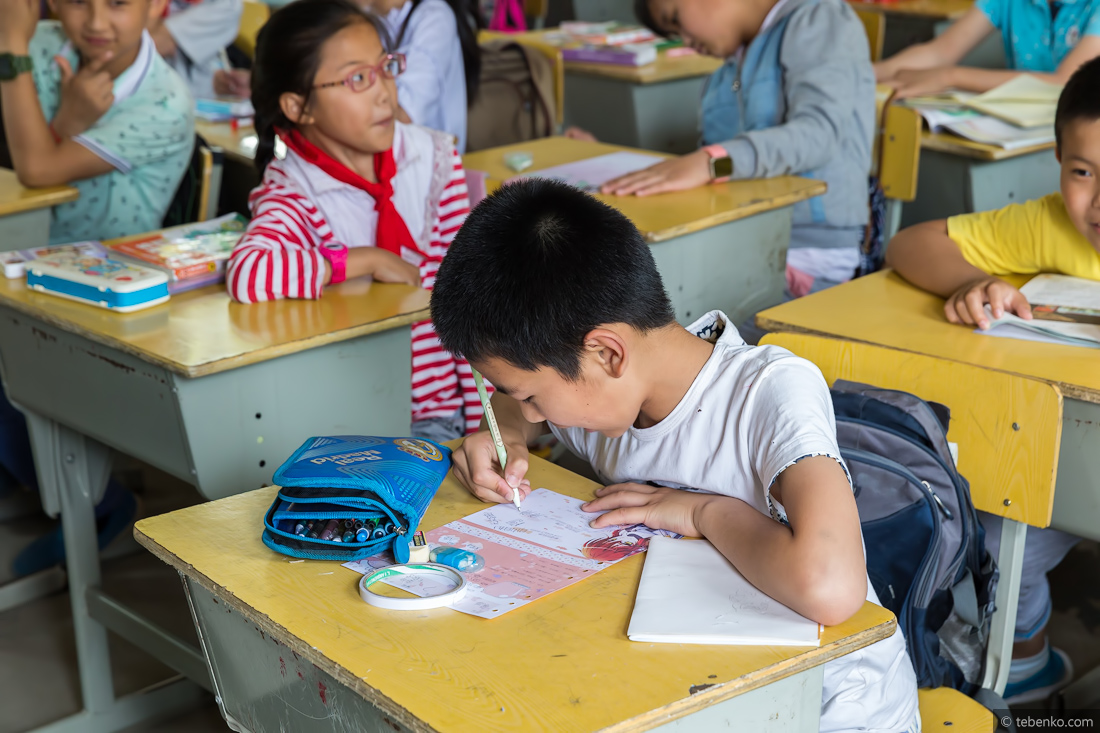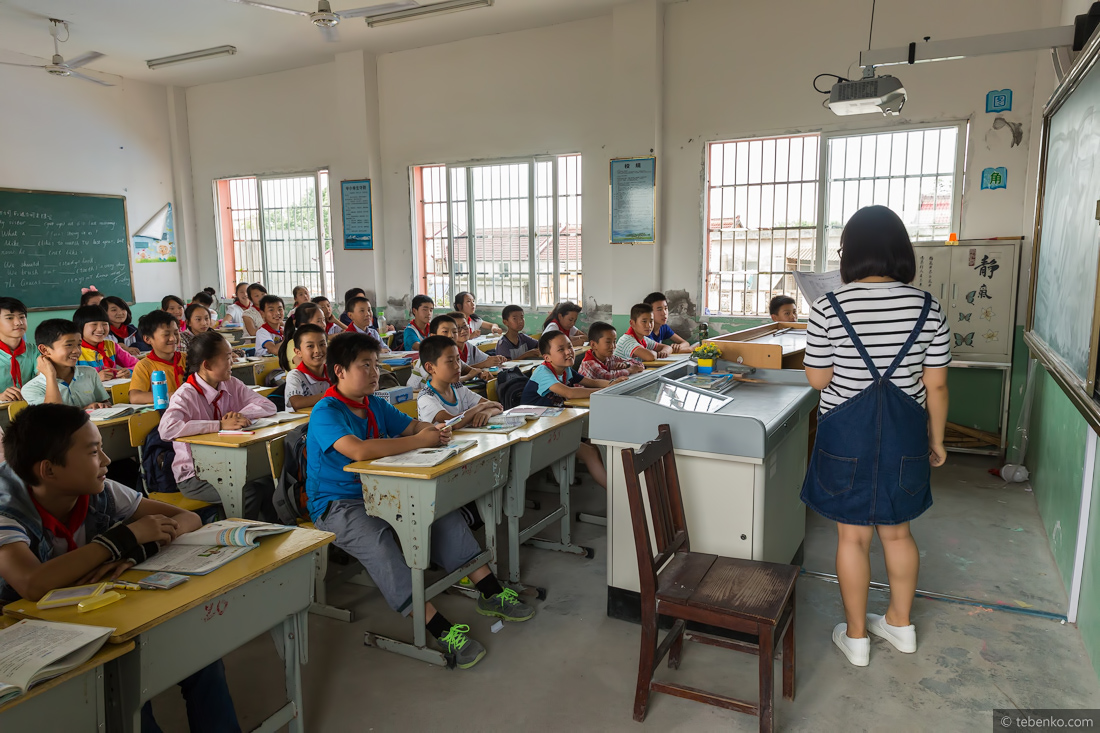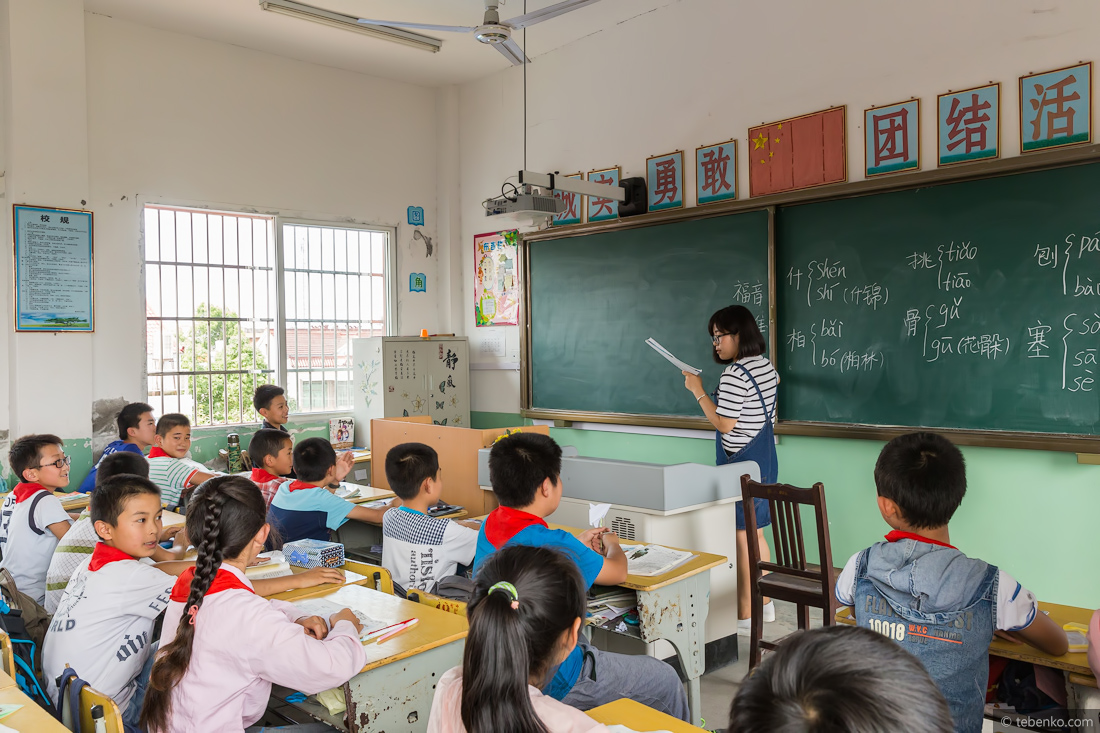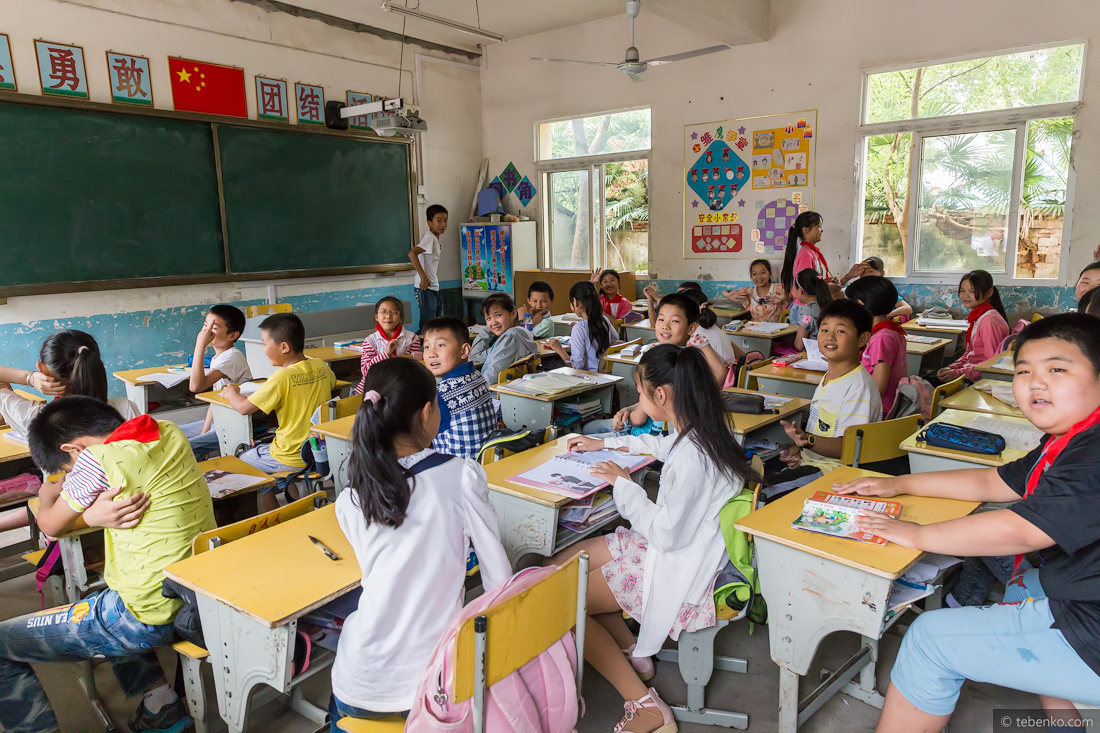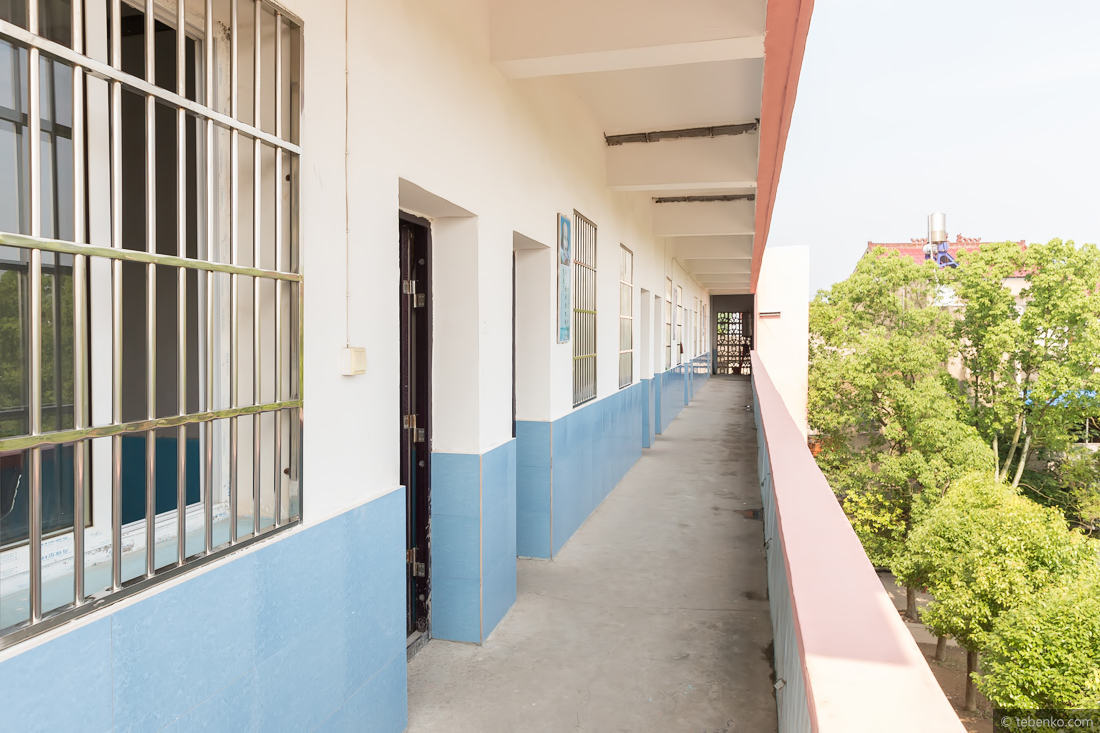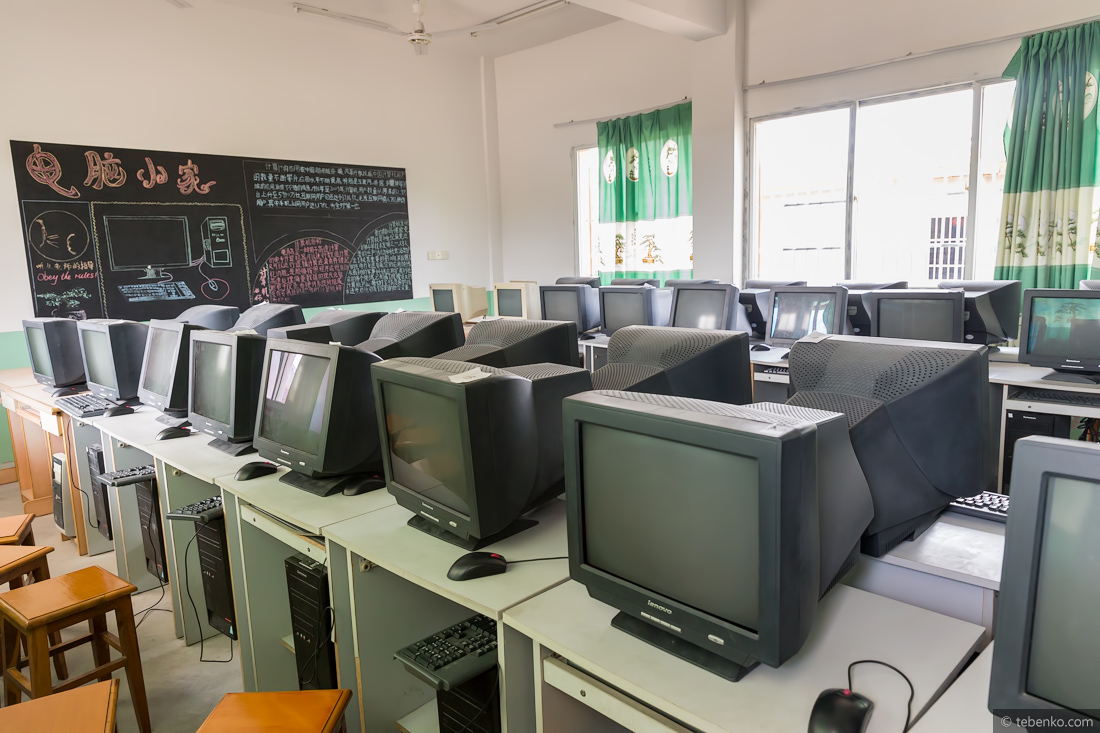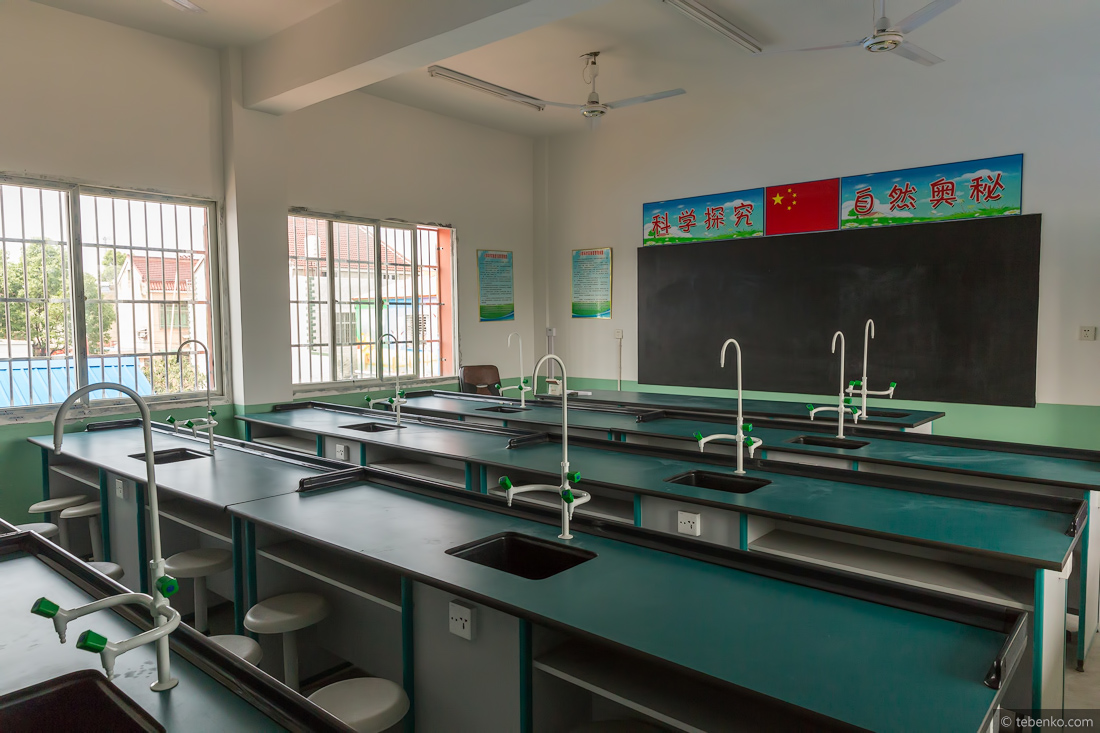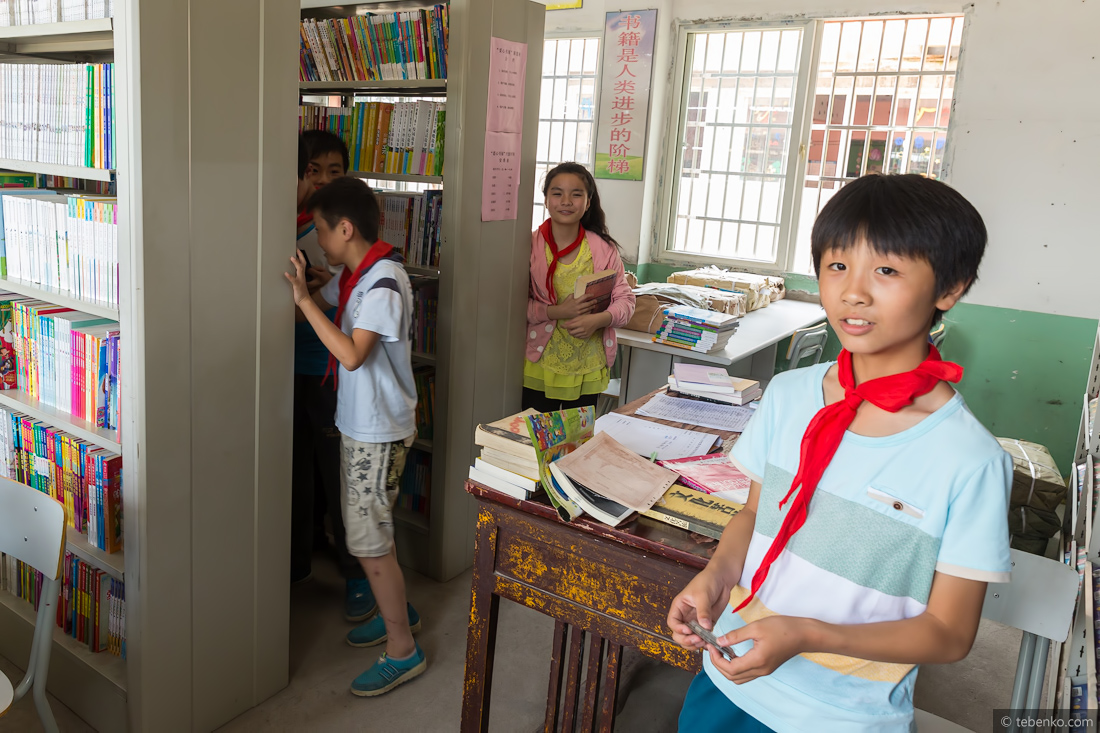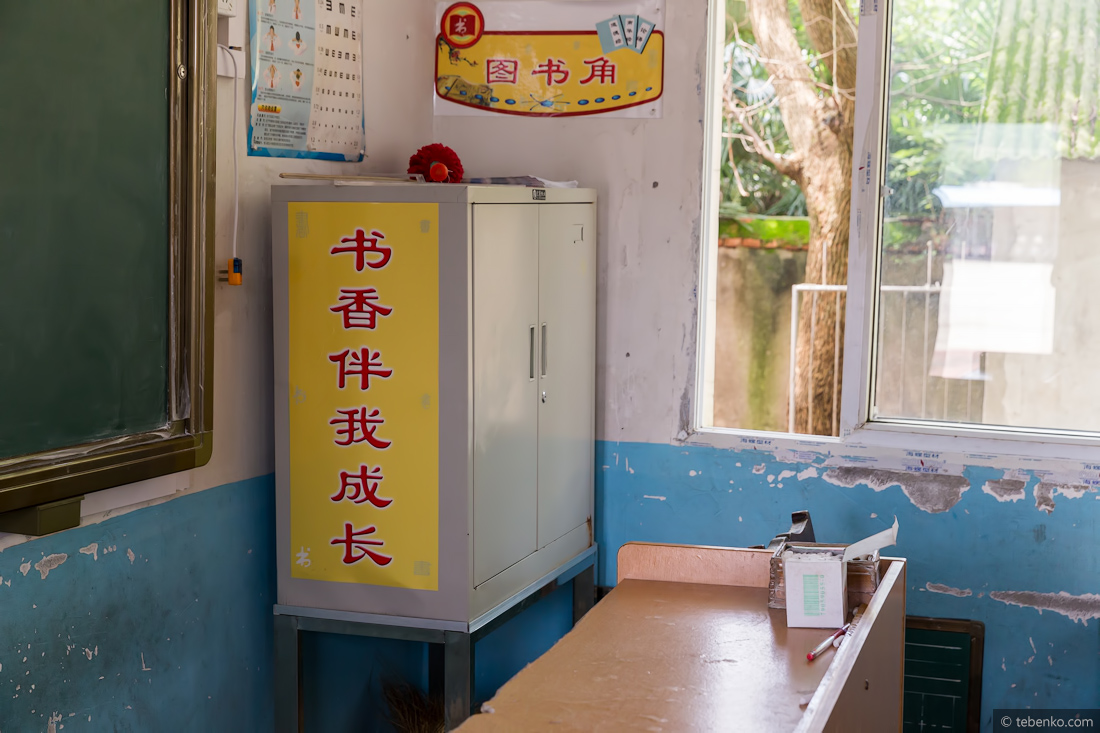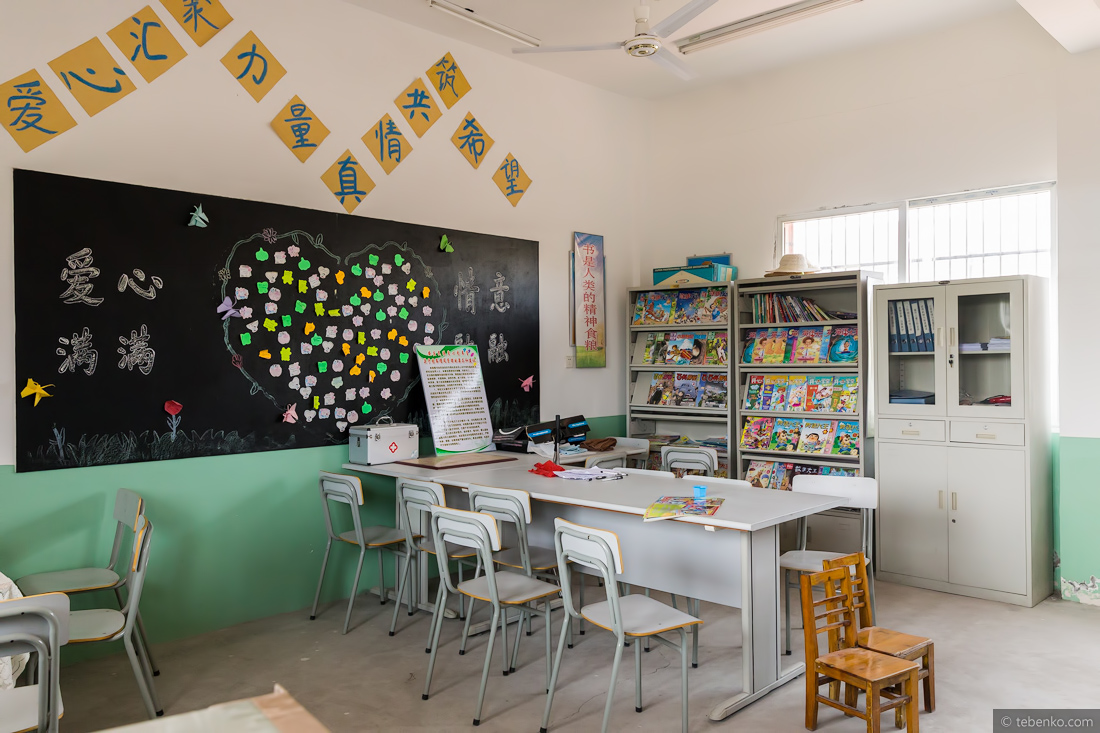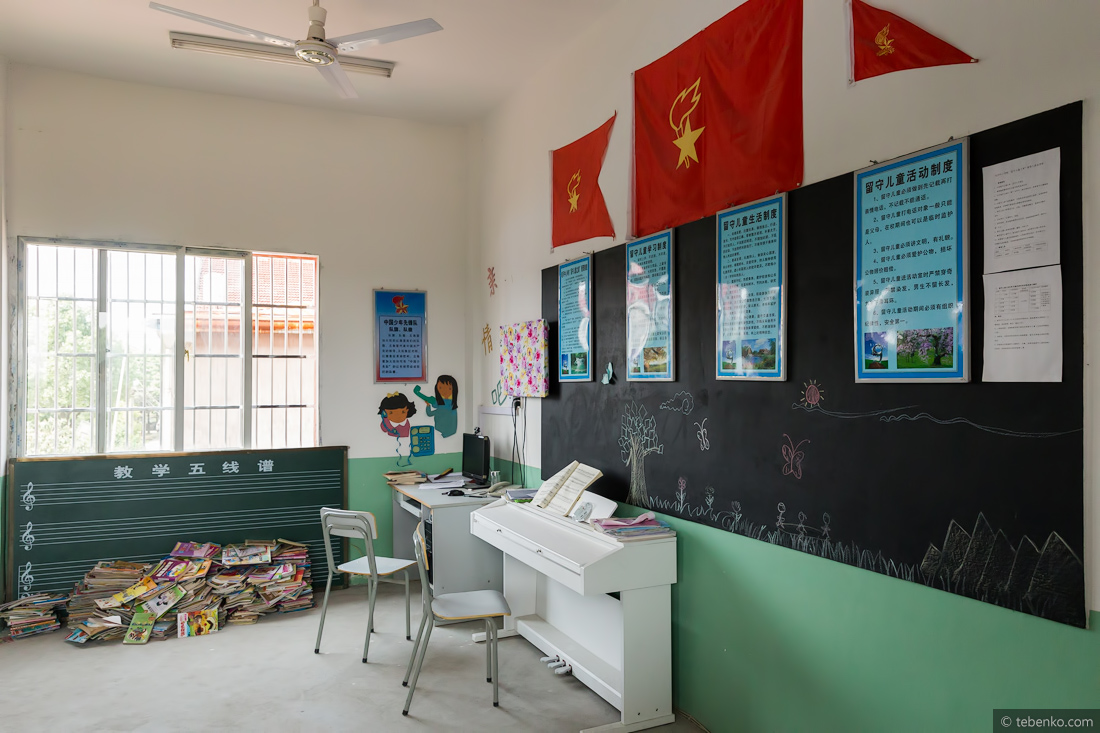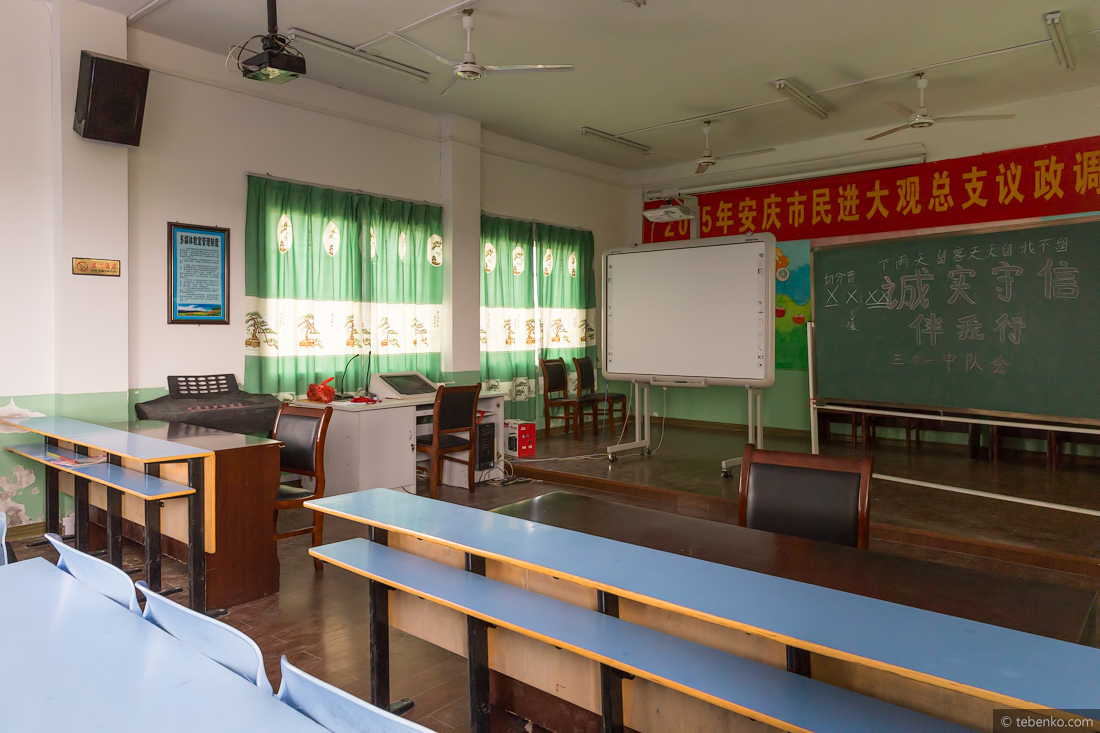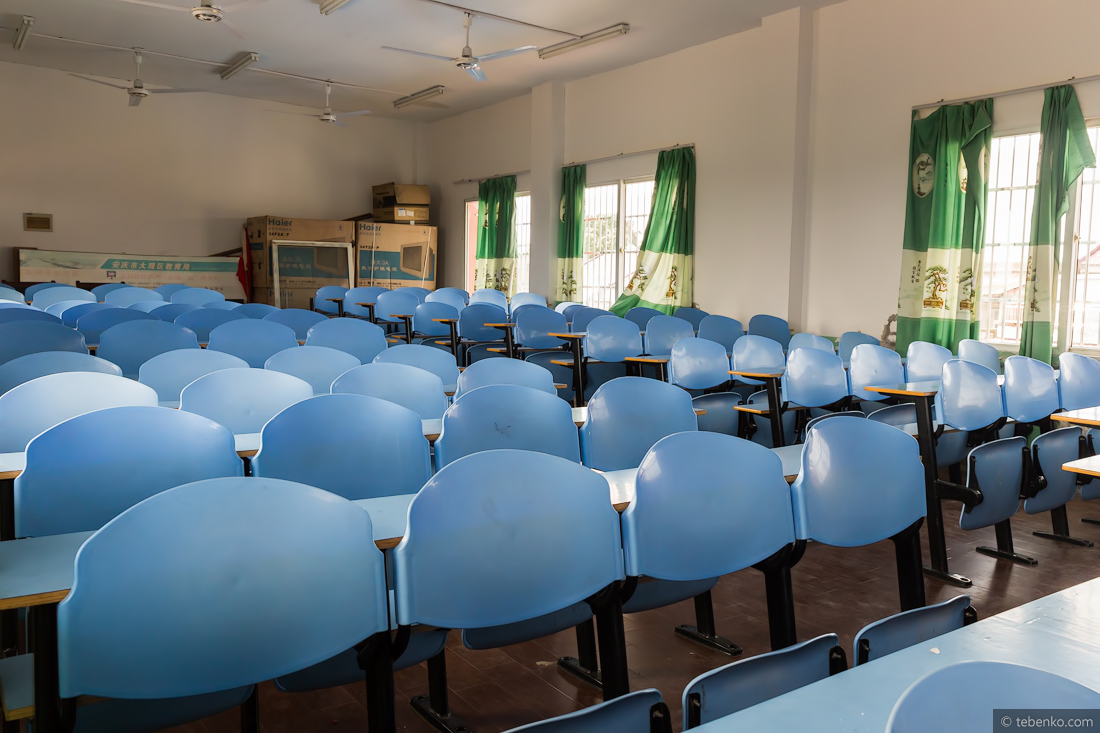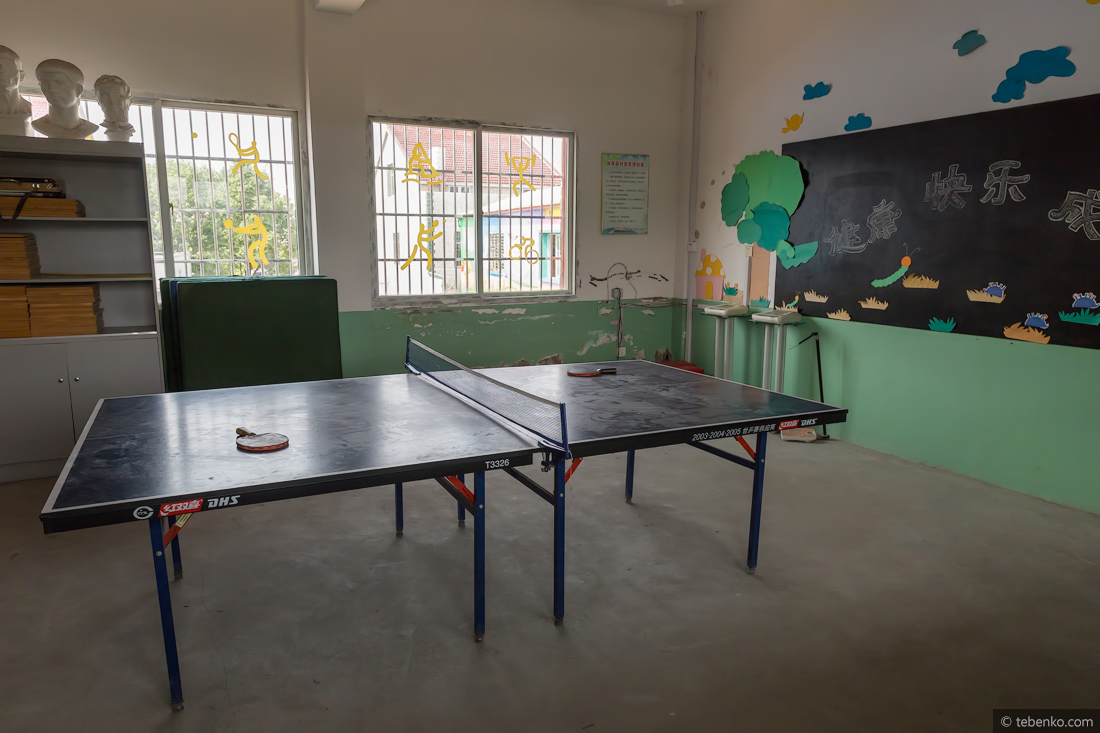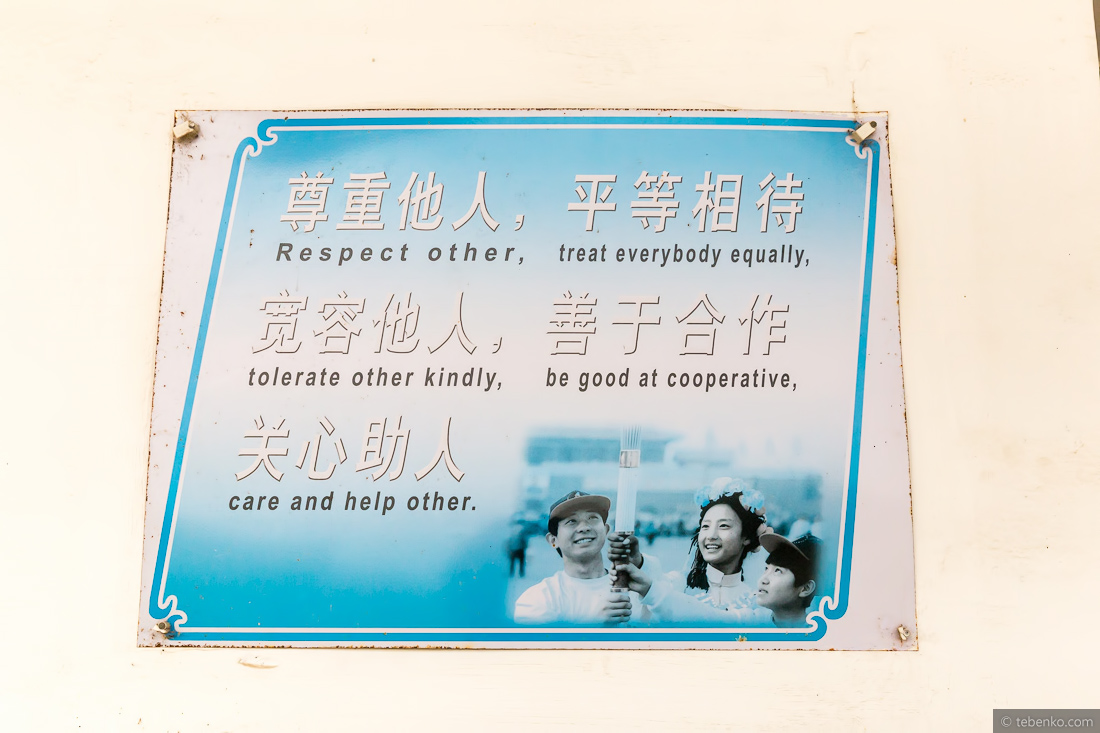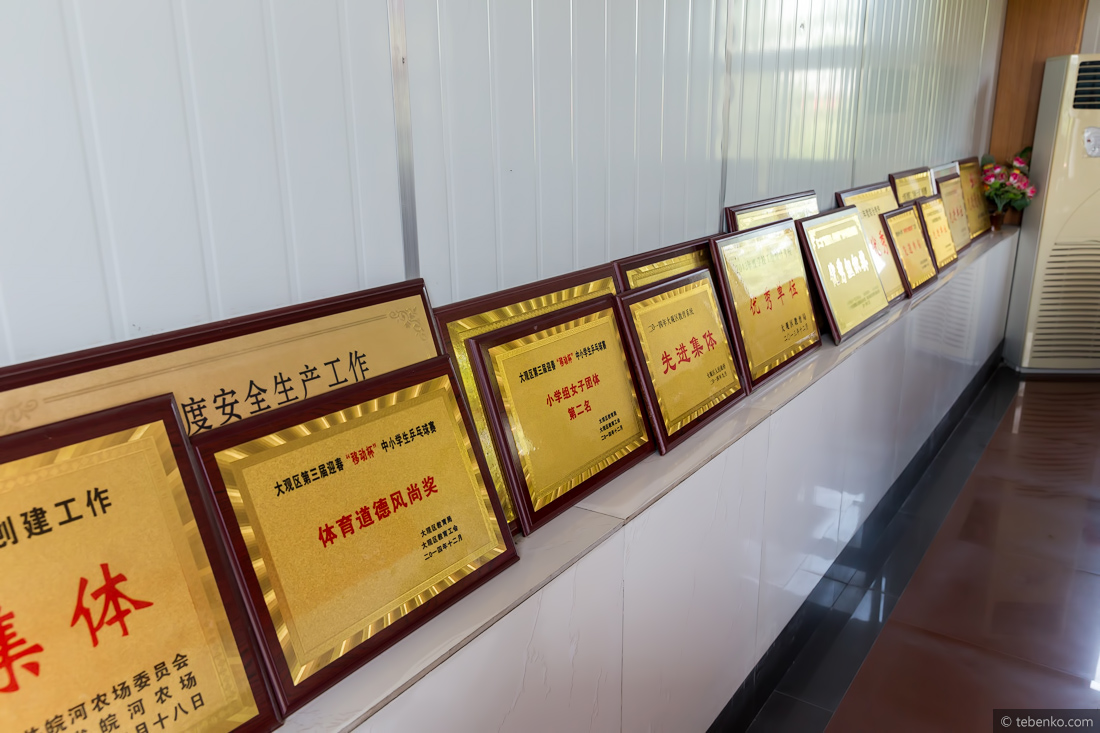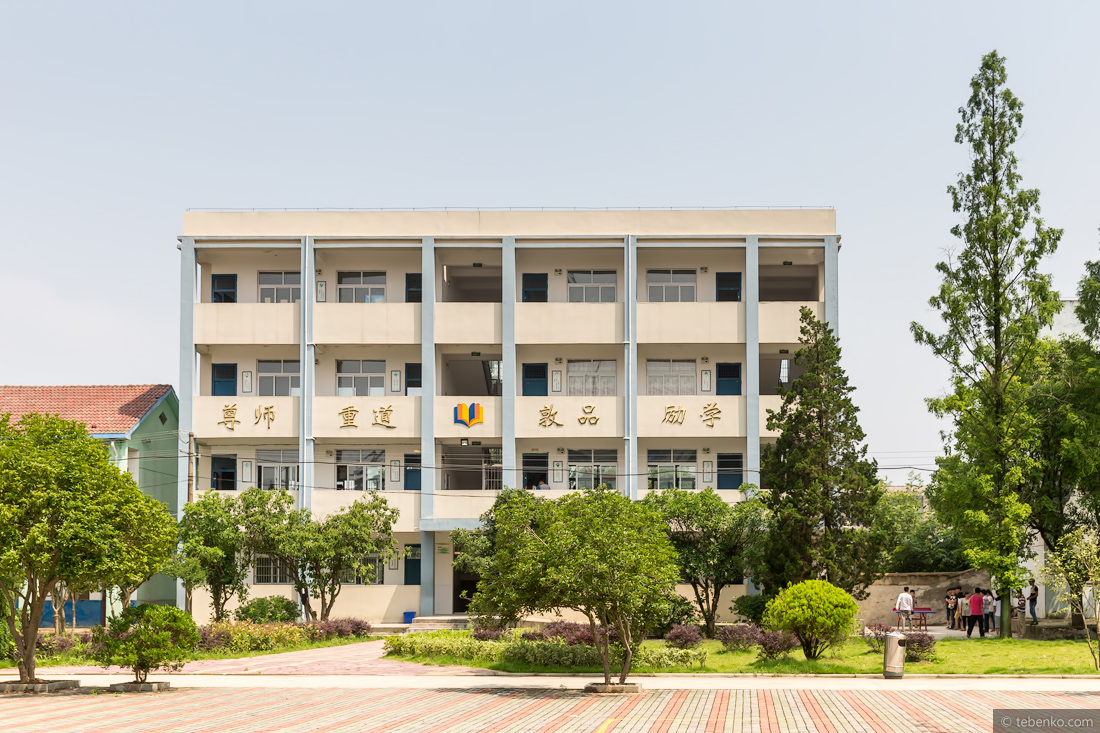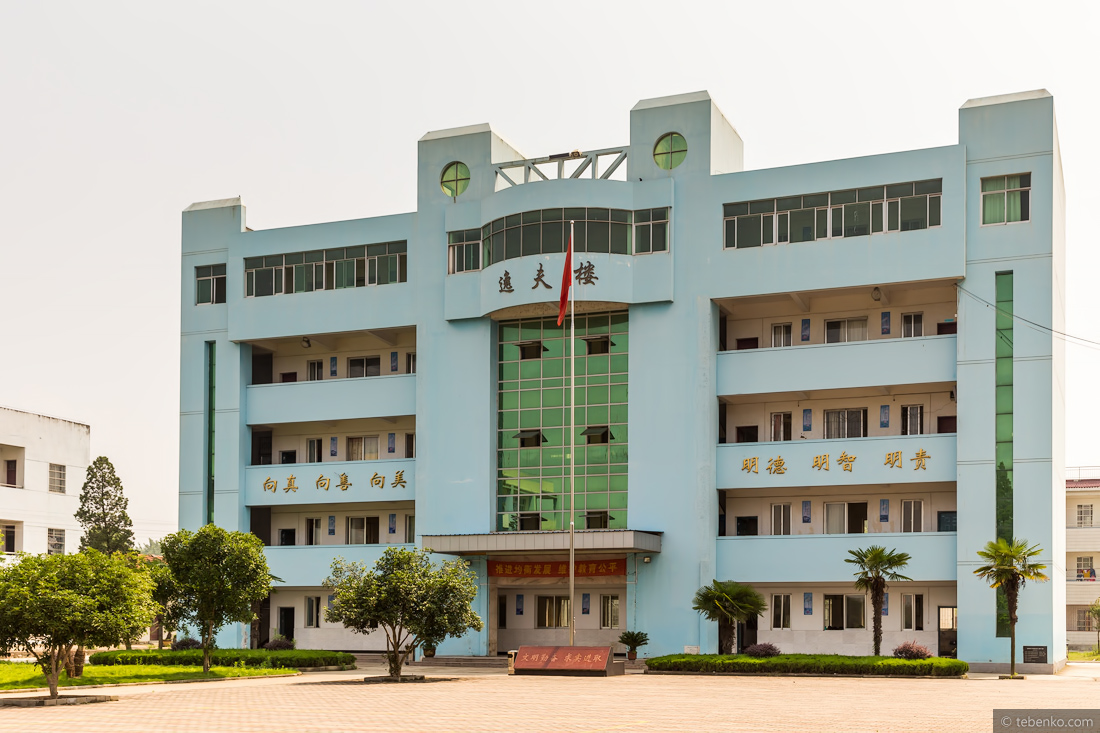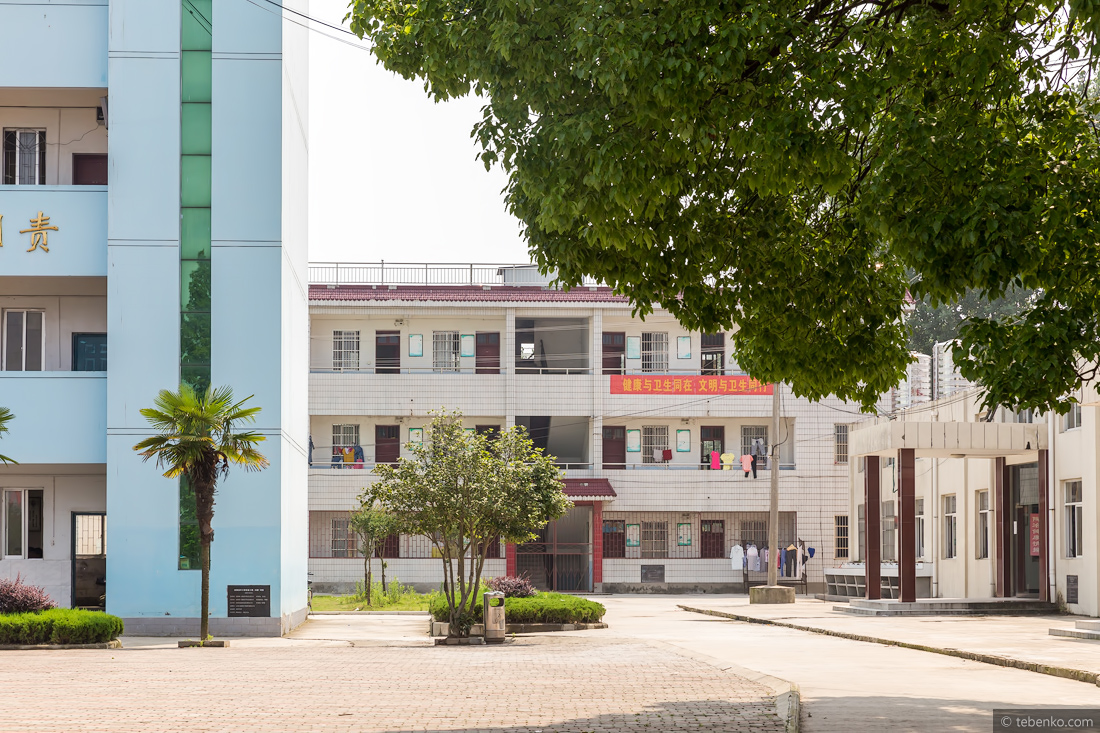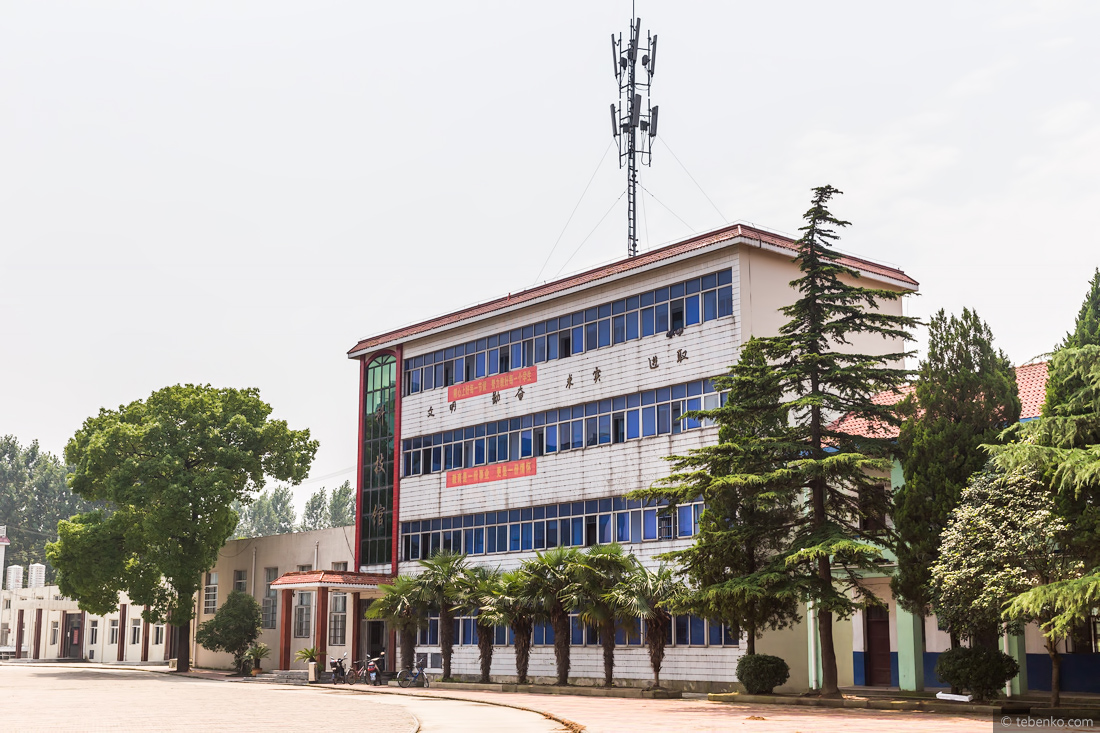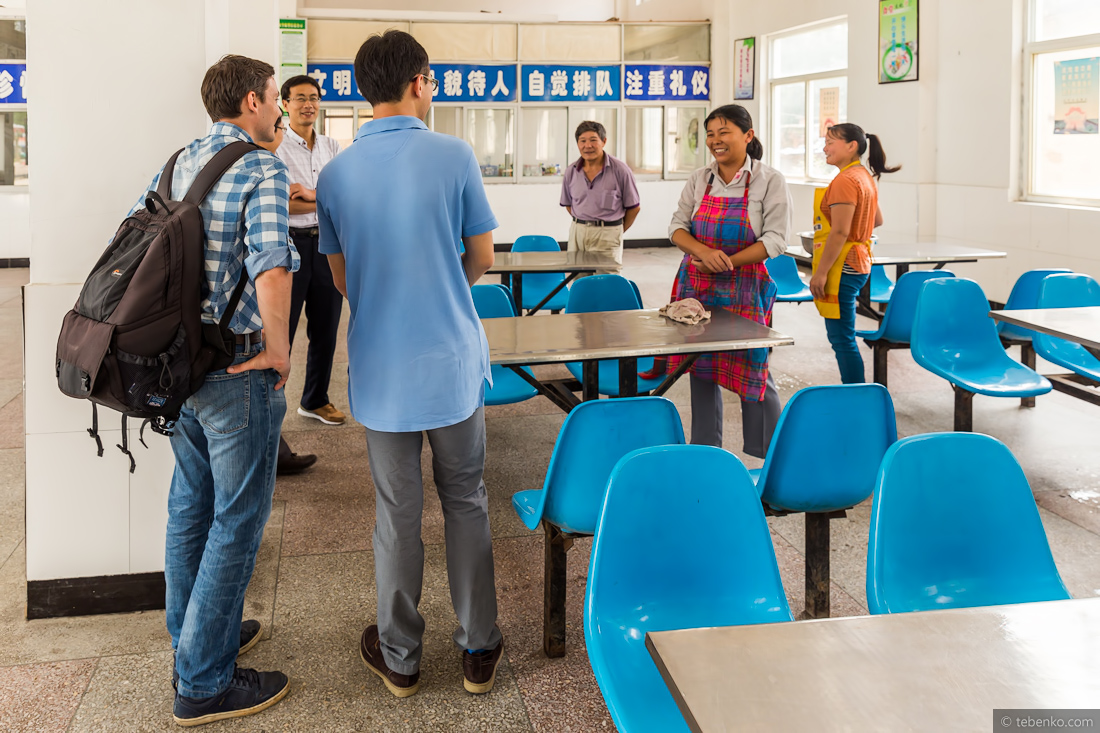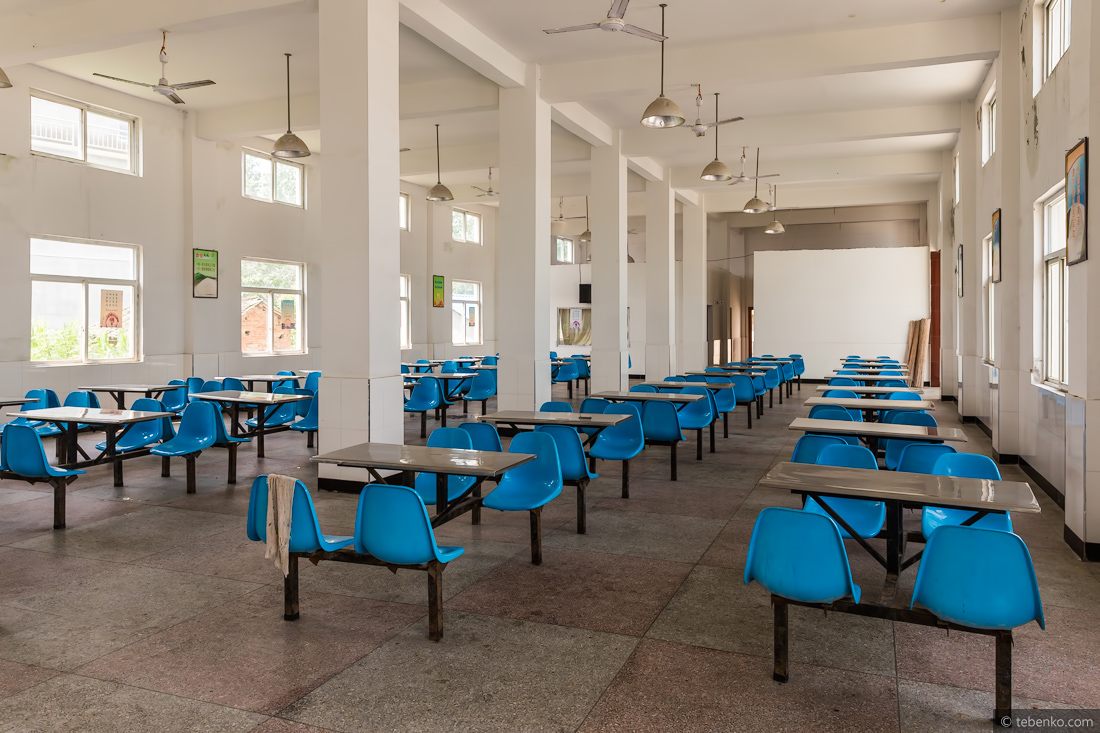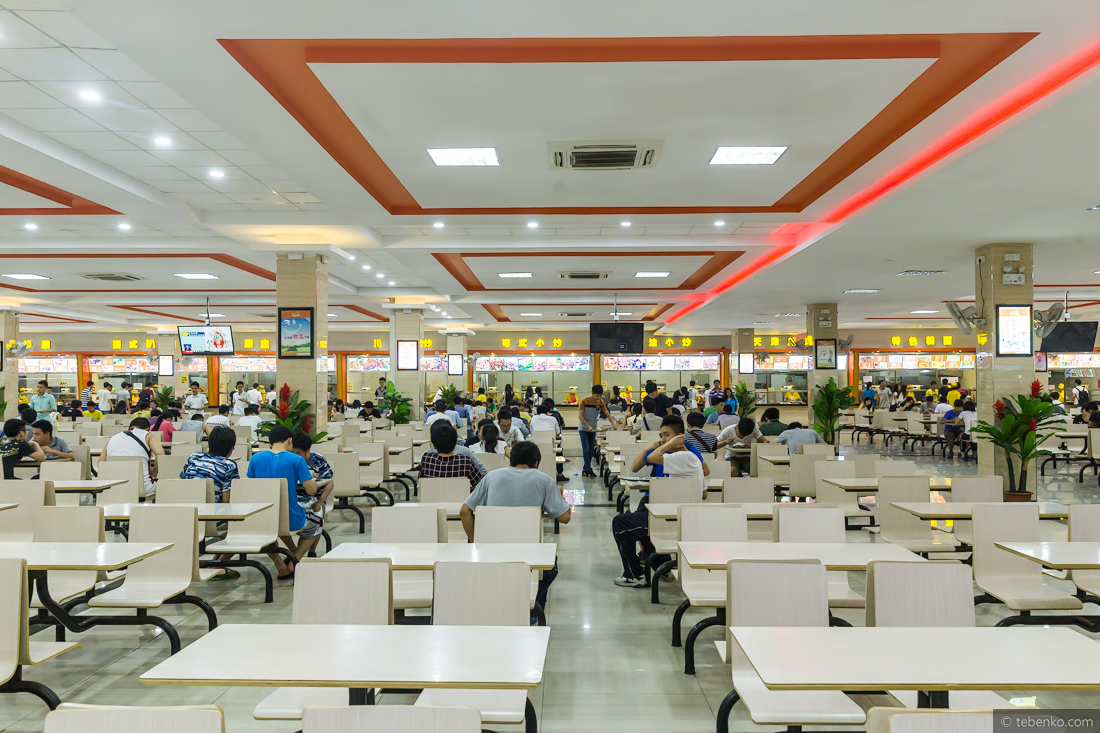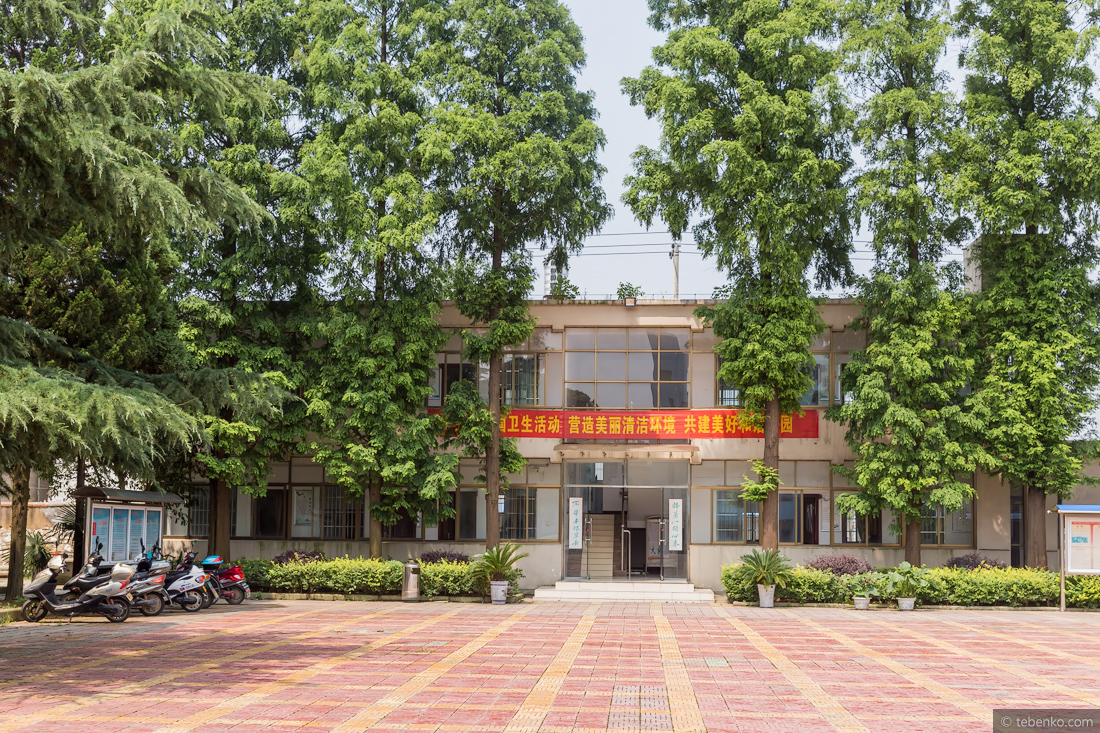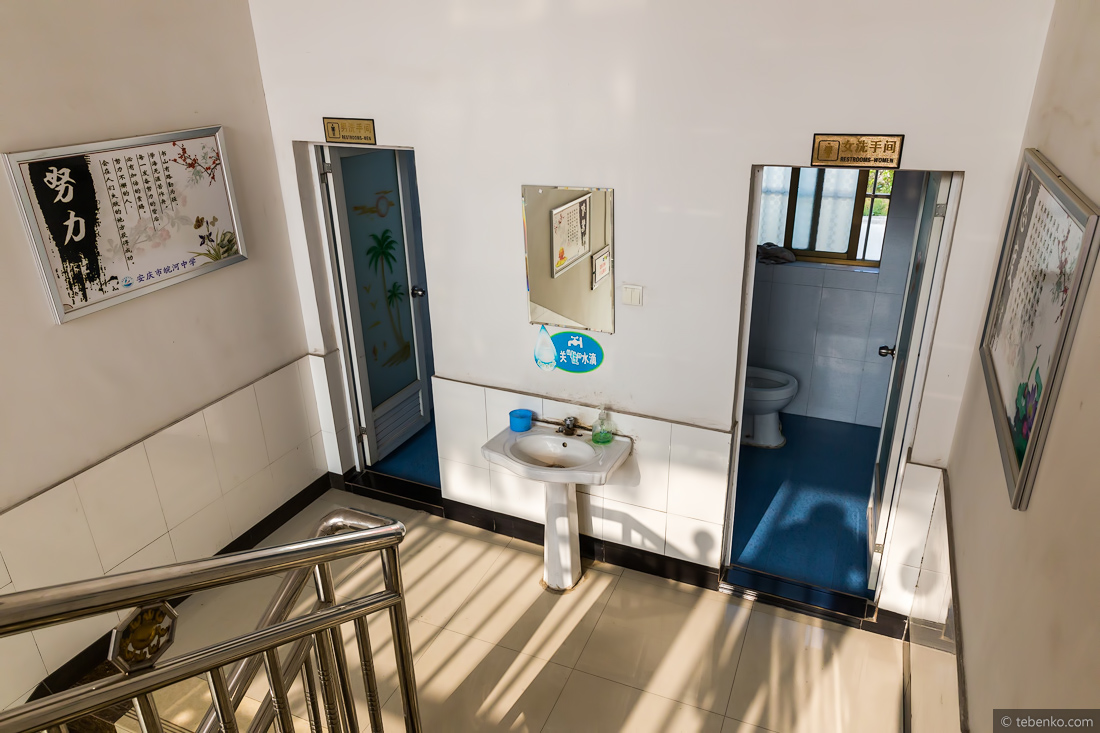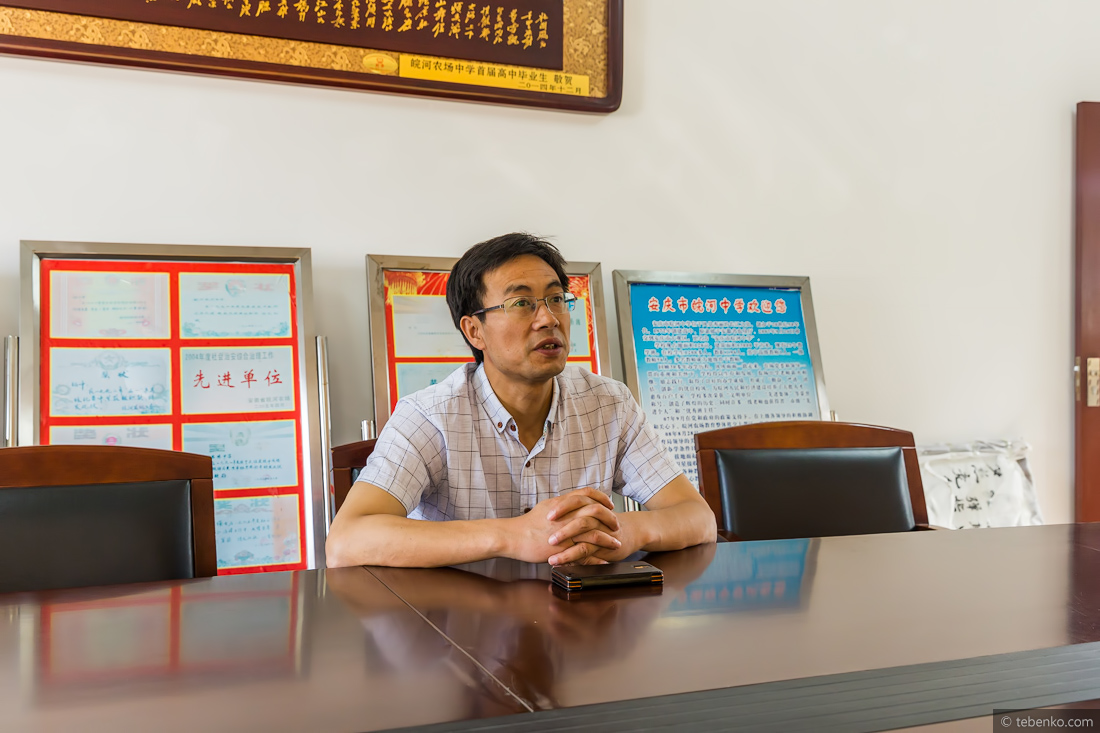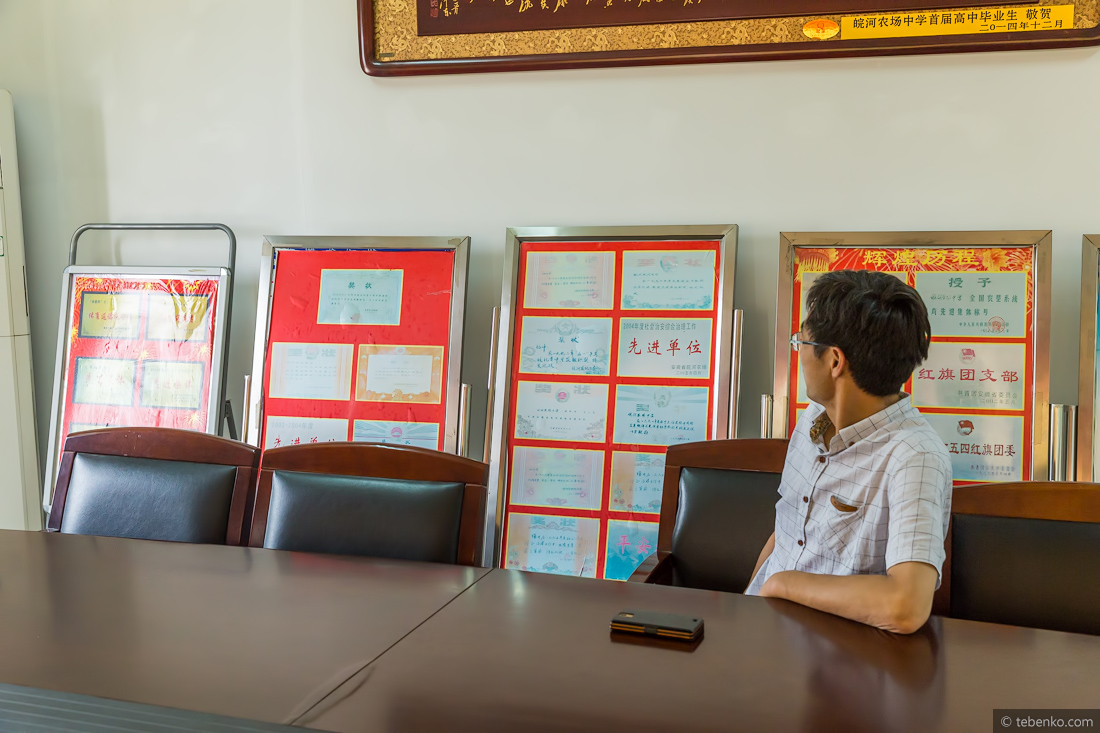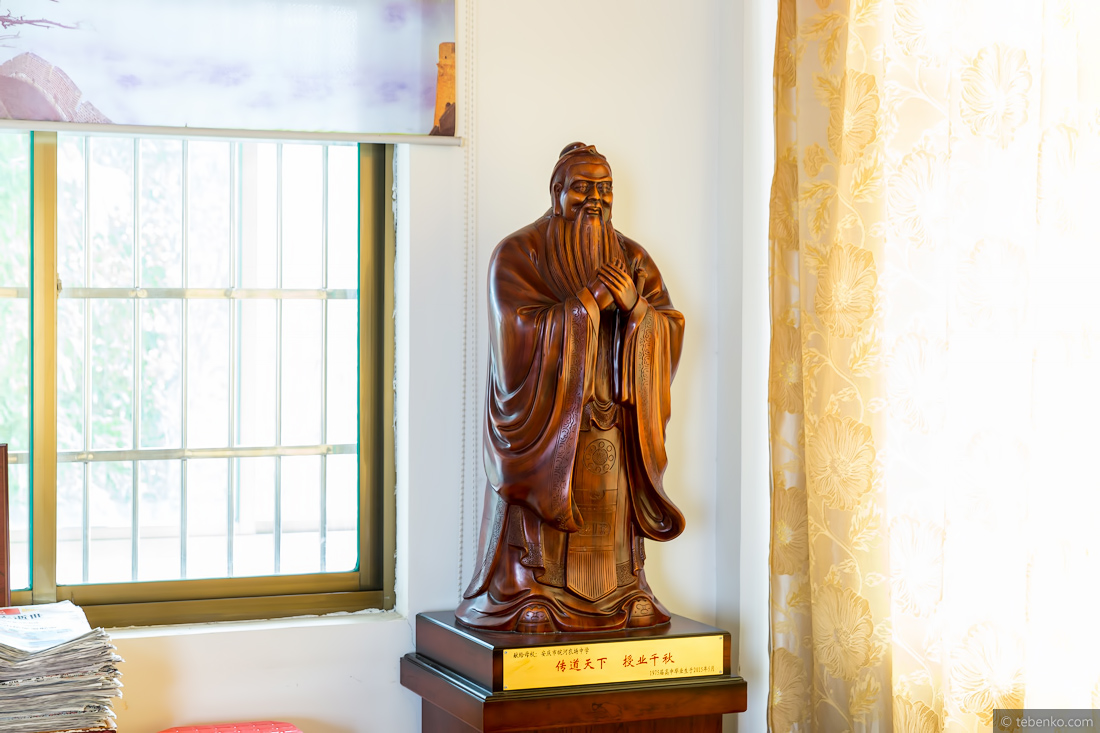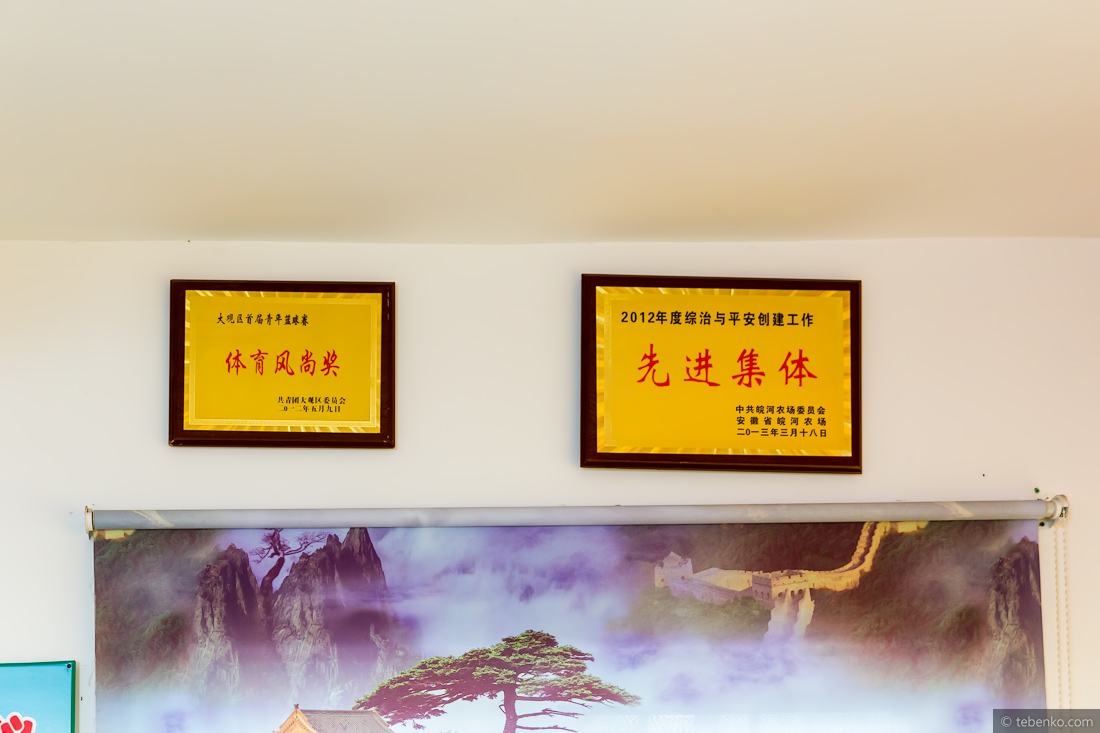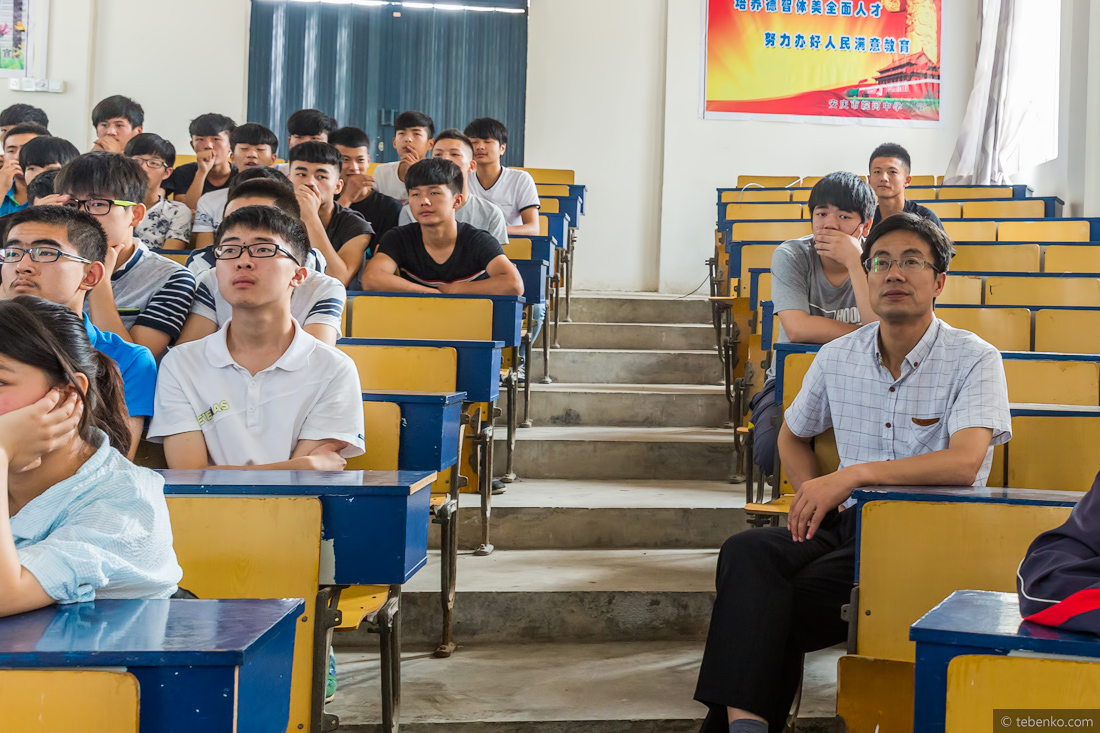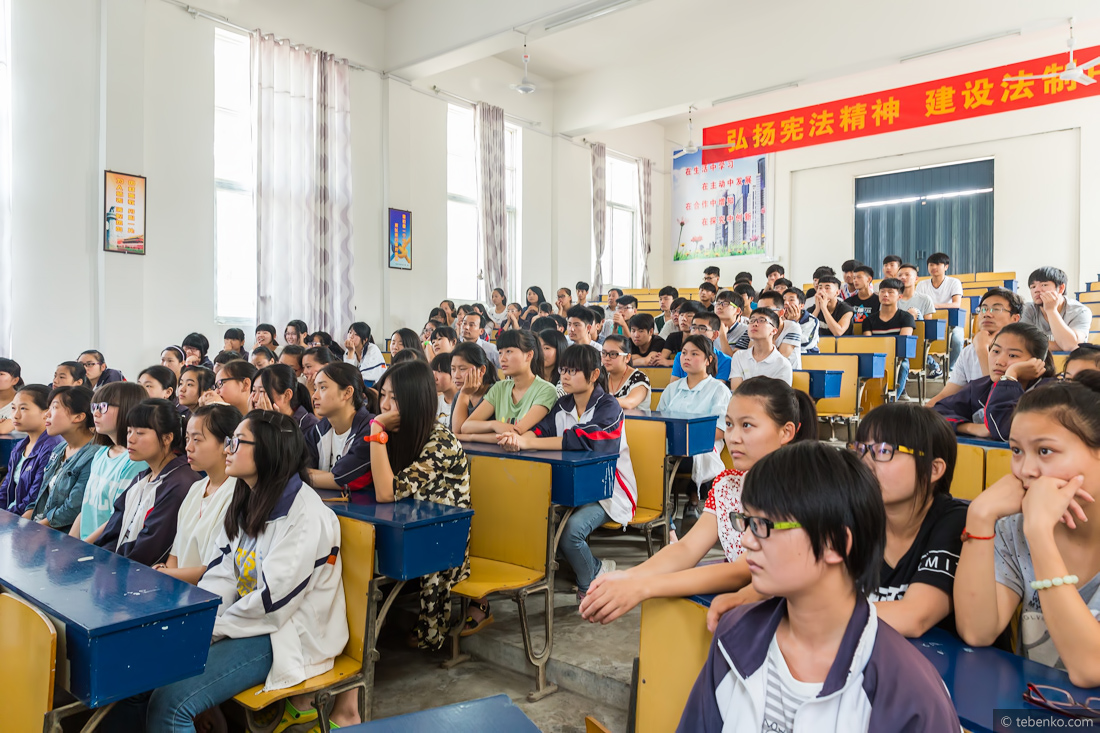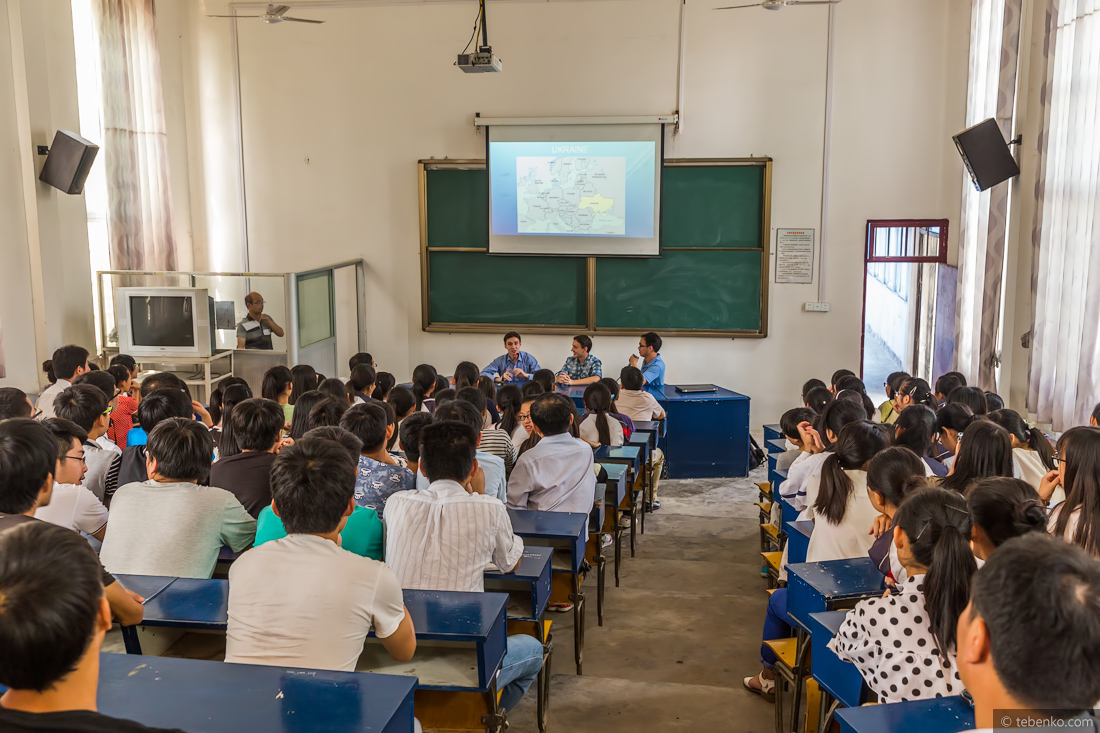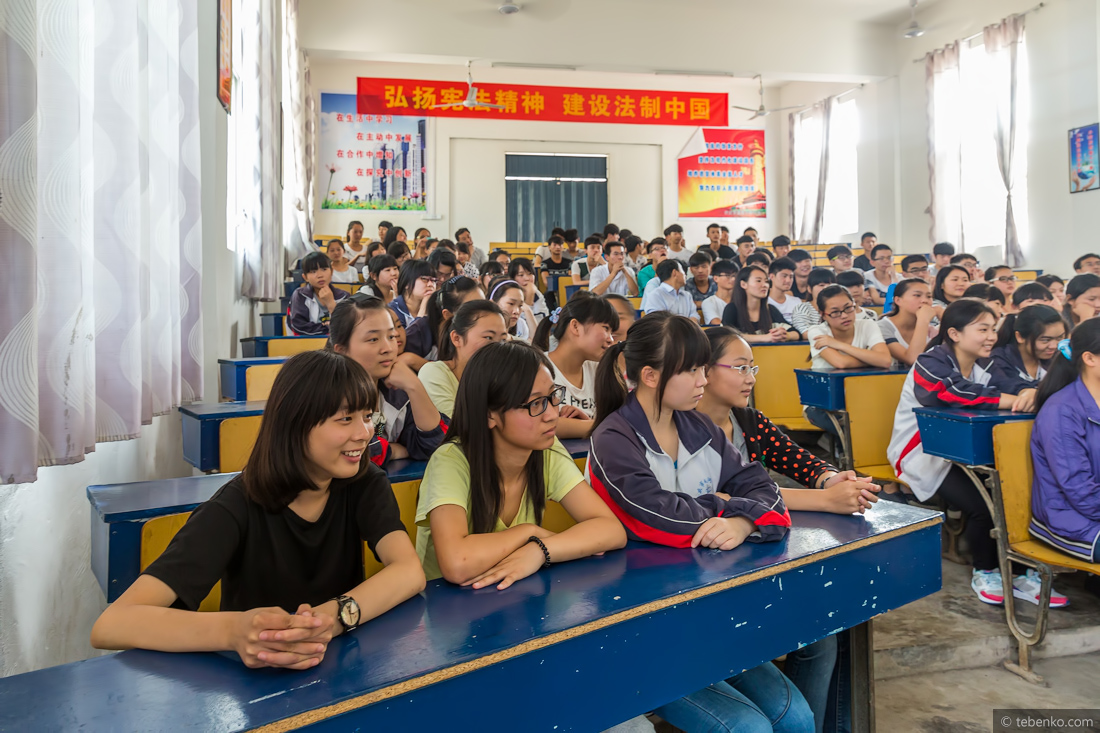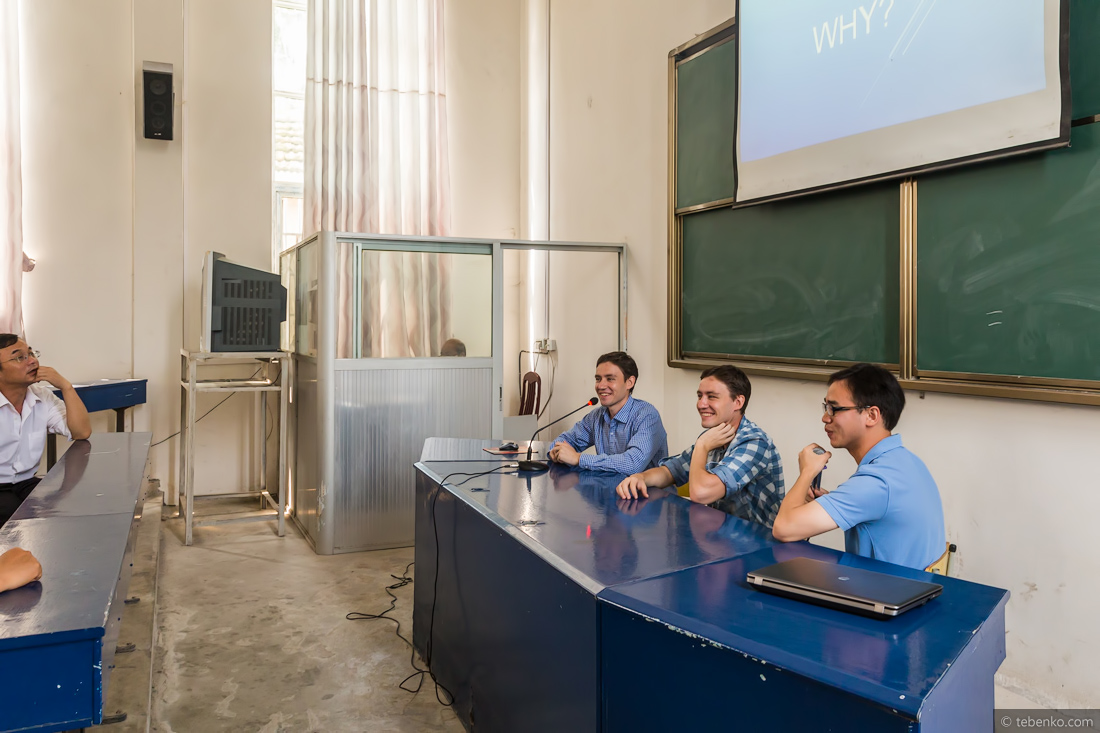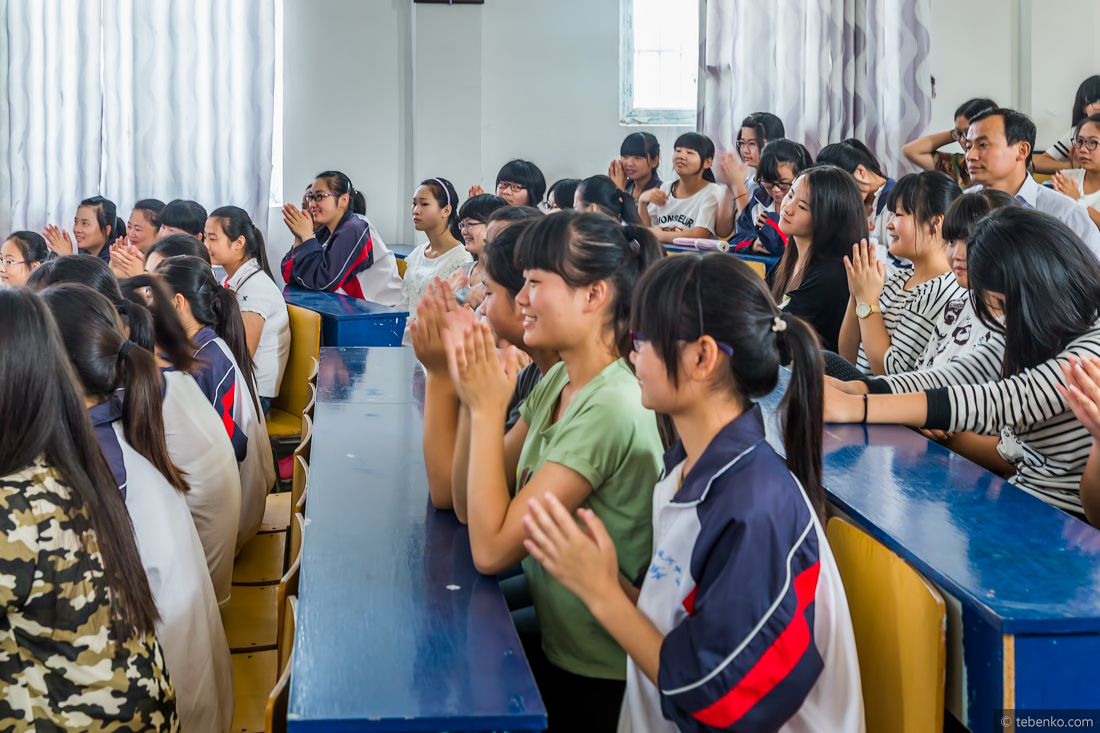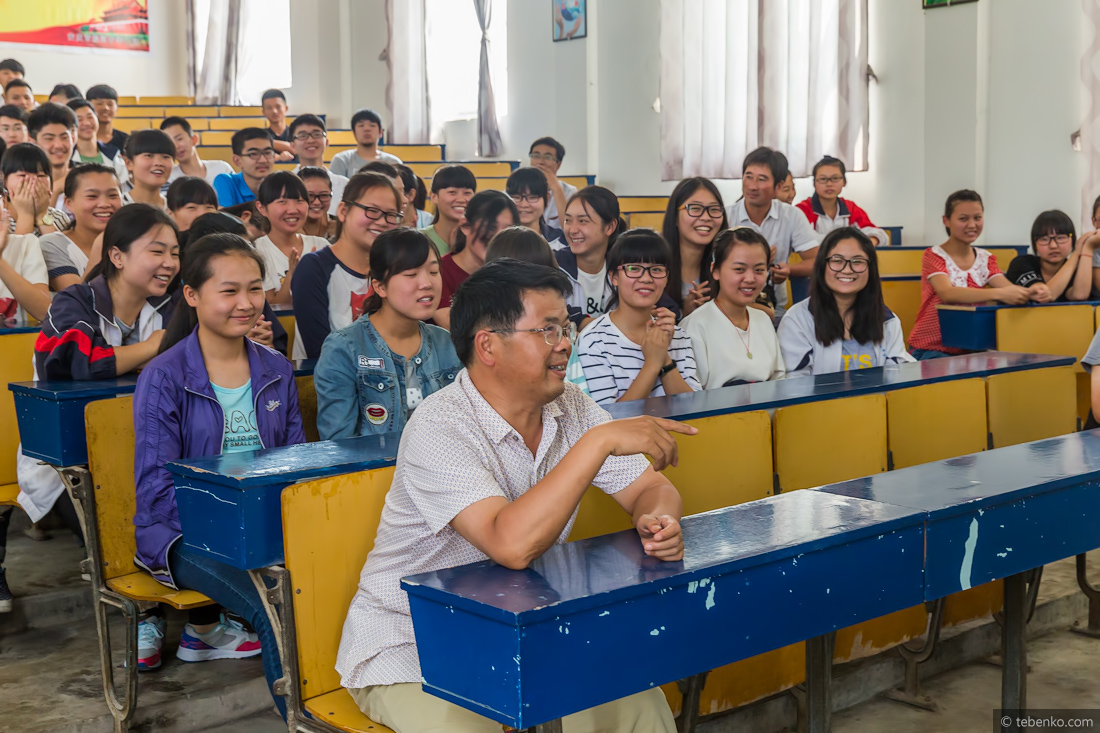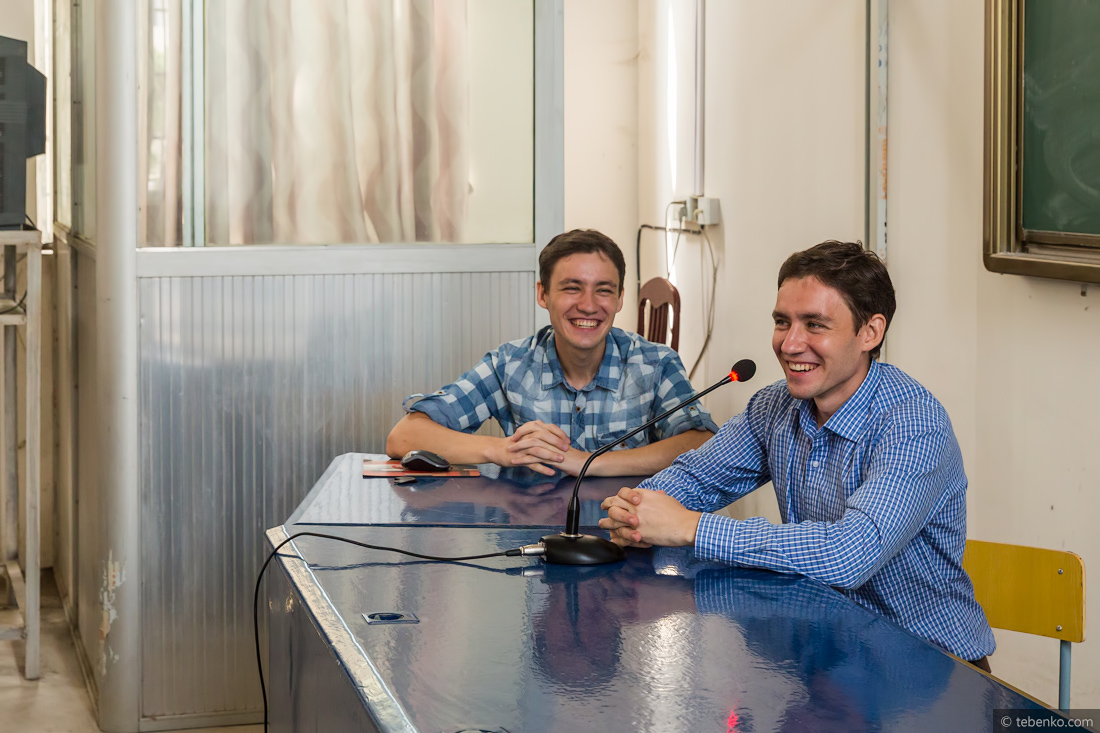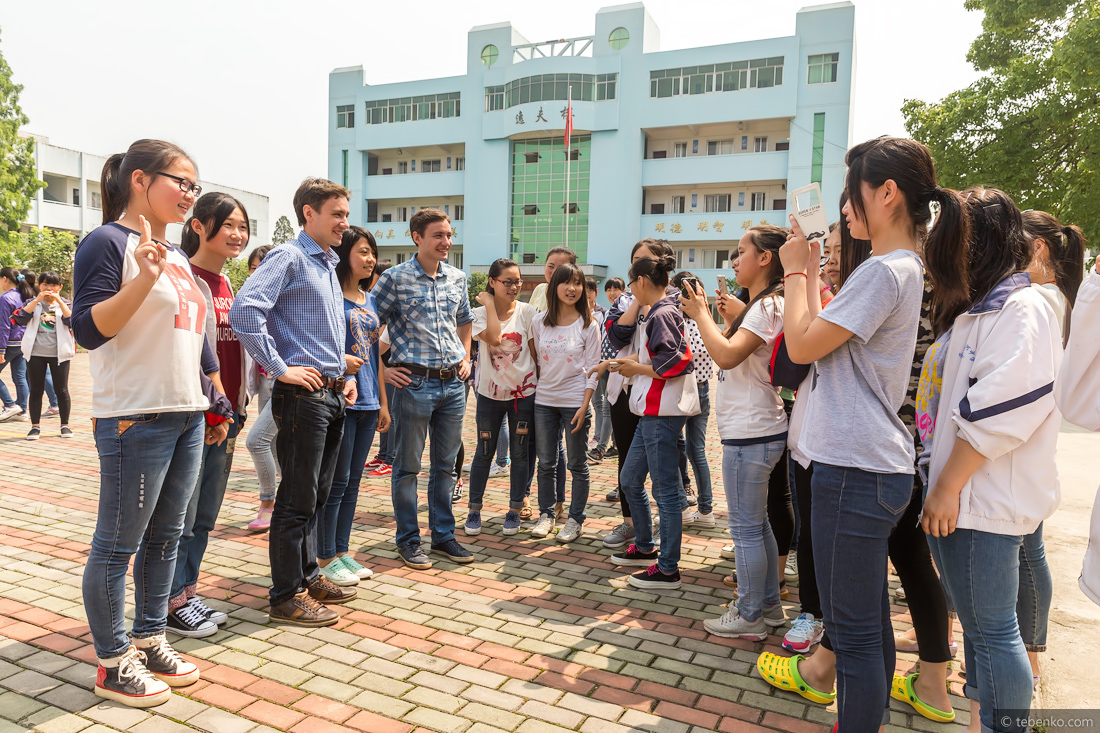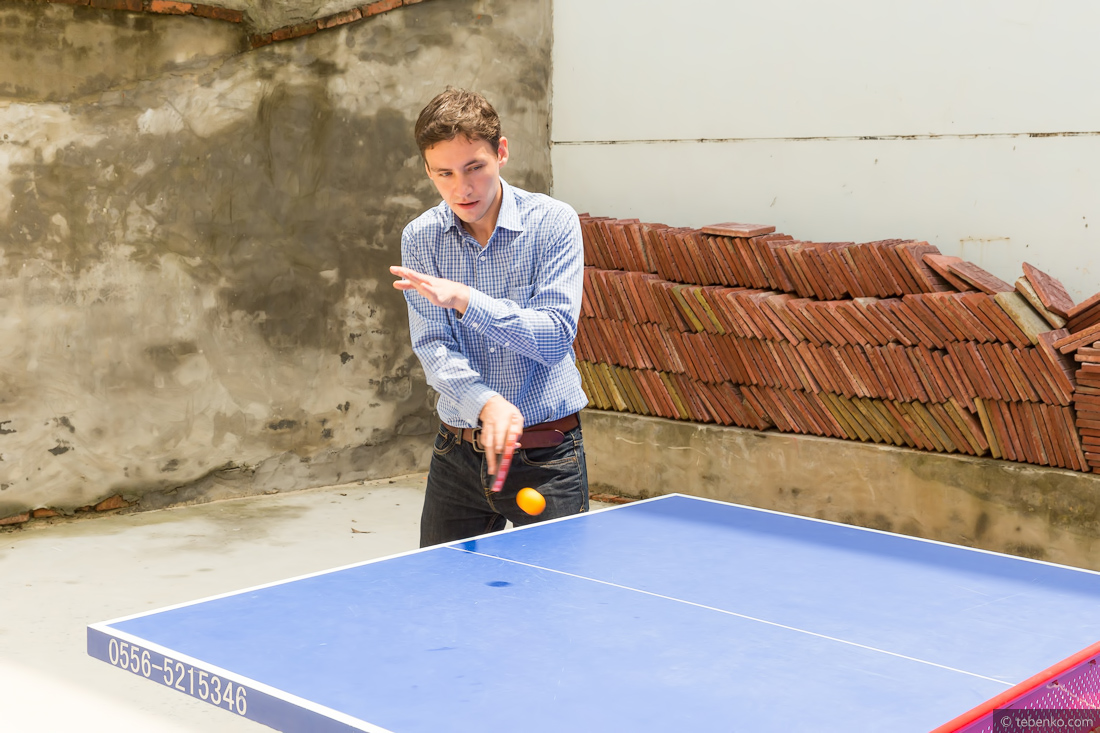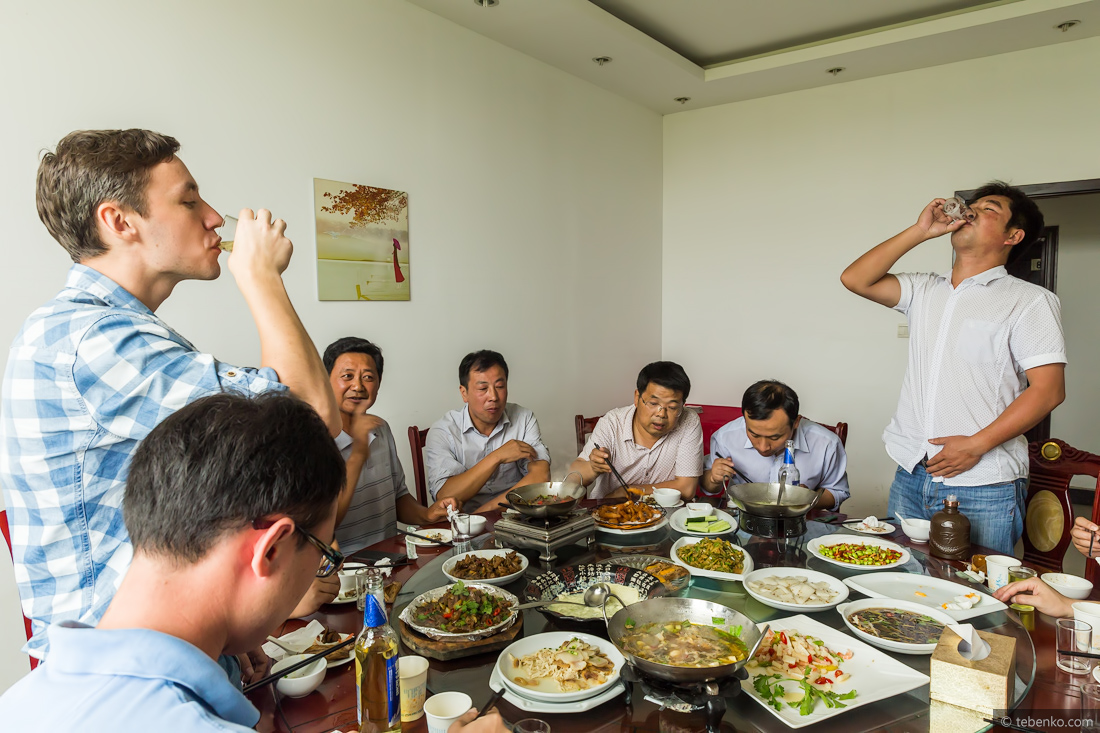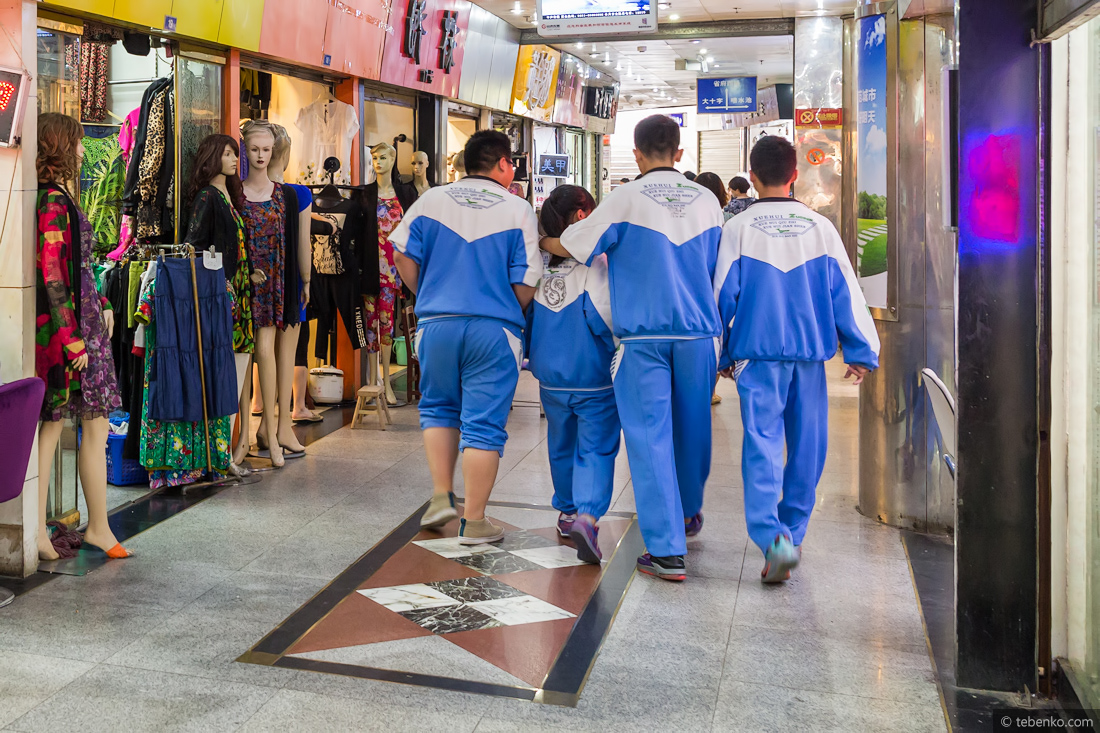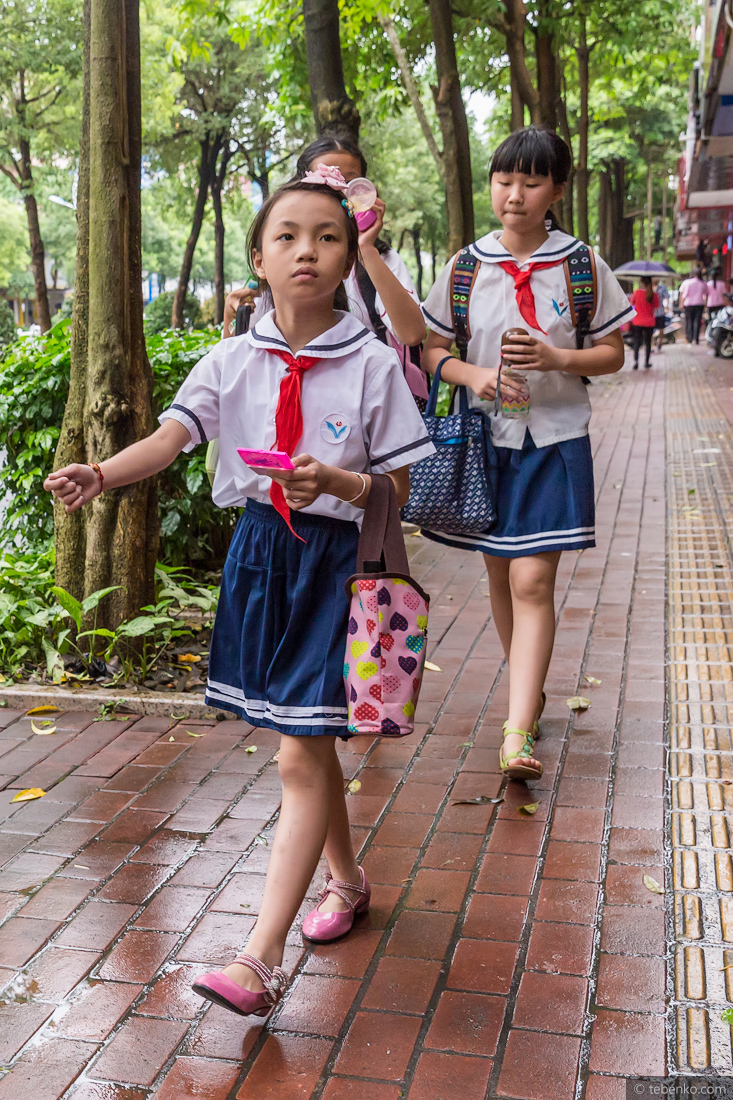As fate willed, but not without the help of $90, we found ourselves in China. The same China where everything is «made in». But today we’re going to talk not about our favorite brands production, but about a highly moral thing. Today we’re going to tell you about the education of Chinese youth, the period called «School» to be more specific. First of all, what you need to know about the Chinese educational system? It is the largest educational system in the world. If you didn’t know China has a lot of the largest / the longest / the most expensive / the deepest things in the world and by the way most of them were created by Chinese themselves. We can’t say that they are trying to compensate something but the fact remains.
10 million students graduate from Chinese schools each year. On the educational needs 4% of GDP are spent. In order to explain this figure imagine 4% of Chinese GDP — are two Ukraine’s GDP. Two GDP of Ukraine is 4% of China’s GDP.
It all began in 1986 when Chinese weren’t so wealthy, the government passed a set of laws that guaranteed secondary education (6 years of primary and 3 years of secondary school) to everyone, who has a birth certificate. It seemed that such kind of government initiative meant free education, but de facto it hasn’t become totally free of charge. Eastern monetization model differs from more familiar to us Slavic model, they don’t donate for new curtains or class renewal. Instead, there is the semester’s fee — about 500 yuan ($83) in small towns. In 2006 fee-free education finally reached a Chinese village, but still they have to pay for uniforms, books and meals. Fee-free education reached cities in 2008.
Returning to the subject of a birth certificate. Due to overpopulation, Chinese families are allowed to have only one unpaid child for the rest of the offspring they have to pay and pay a lot. In large cities, the amount starts with $15,000. If they don’t pay, they don’t get a birth certificate and that’s why no school will accept their child.
Educational institutions are divided into primary (from 1st to 6th year), middle (next 3 years), high school (the last 3 years).
We’re buying motorized bicycle for $7 and going on a tour to Chinese schools:
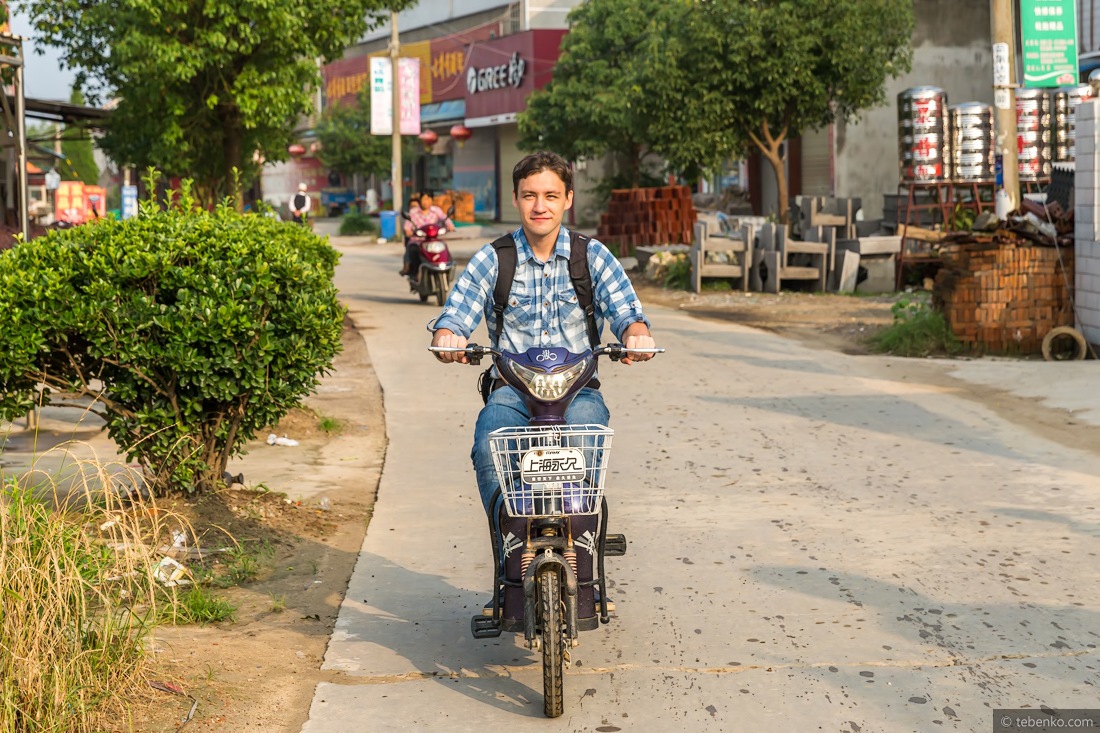 1
1First stop — Anqing Wanhe Farm Center Primary School in the village of Anqing. It’s like our village but on Chinese scale. Entering the courtyard of the school:
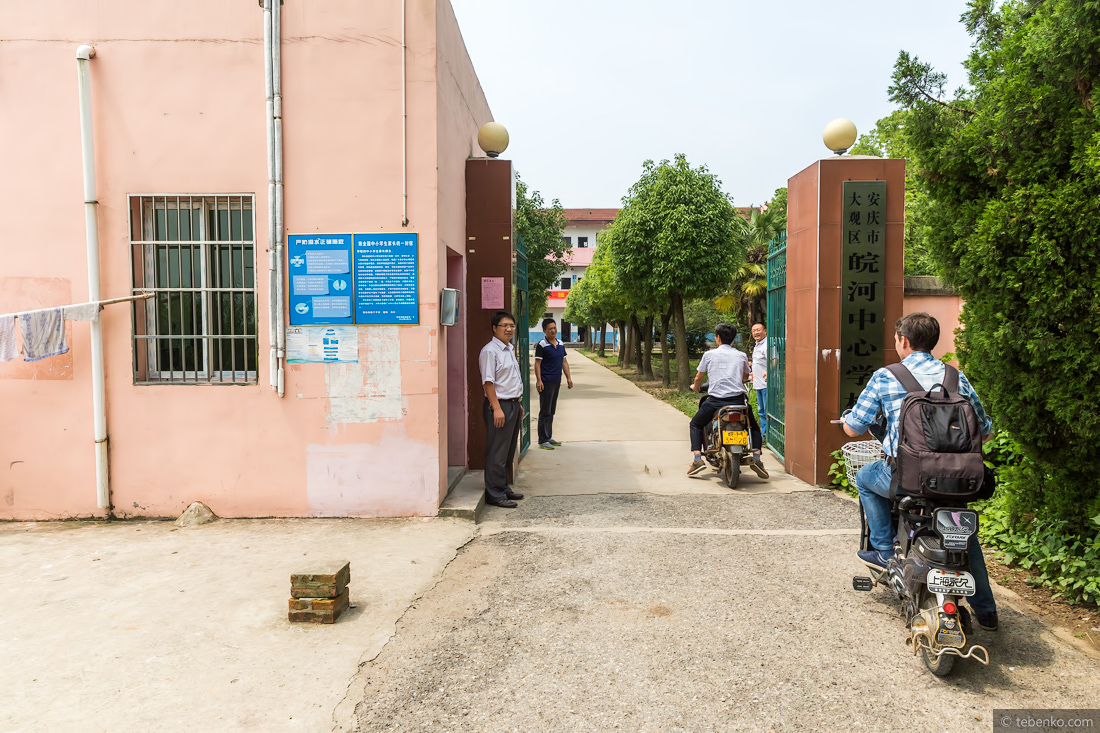 2
2The playground isn’t filled with a variety of sport accessories and seems more like a military ground. Endless fields of Chinese village starts right after it:
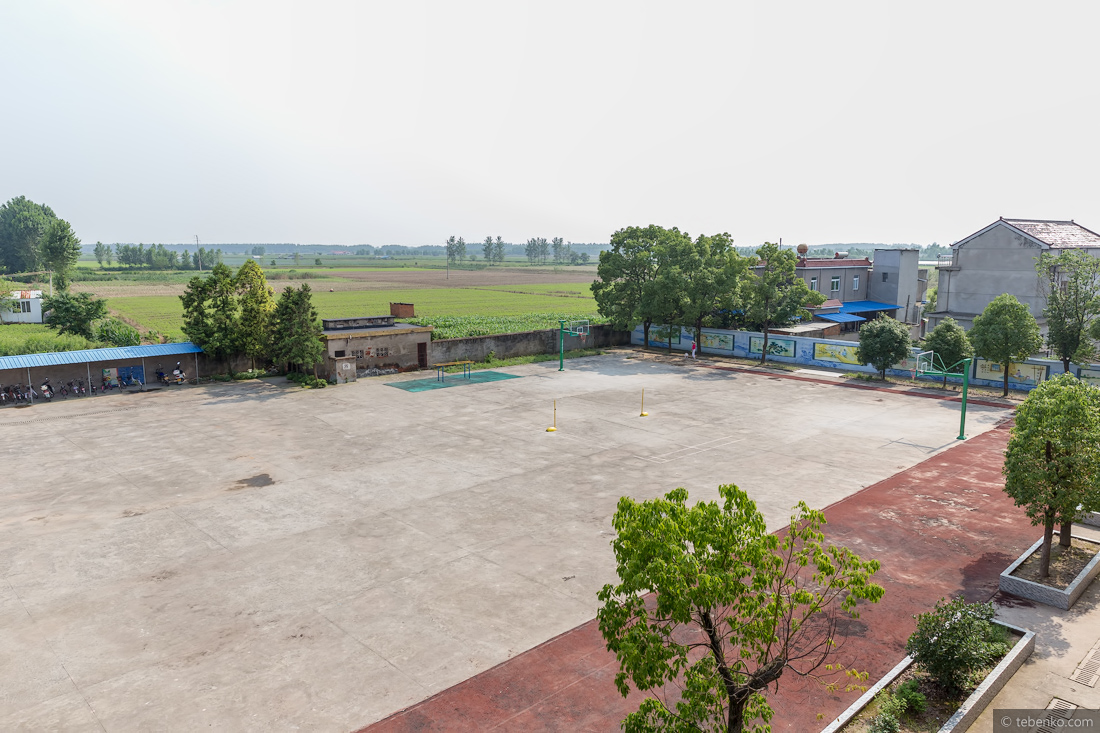 4
4Classes start at 8 AM and last 45 minutes. After the first lesson Chinese pupils come out to courtyard for all-Chinese morning exercises. The only exceptions may be during earthquakes or in the pouring rain.
 5
5The first break is the longest — 15 minutes. Everyone heads back to their classes afterwards. Well, let’s go together.
Funny P23 5th grade.
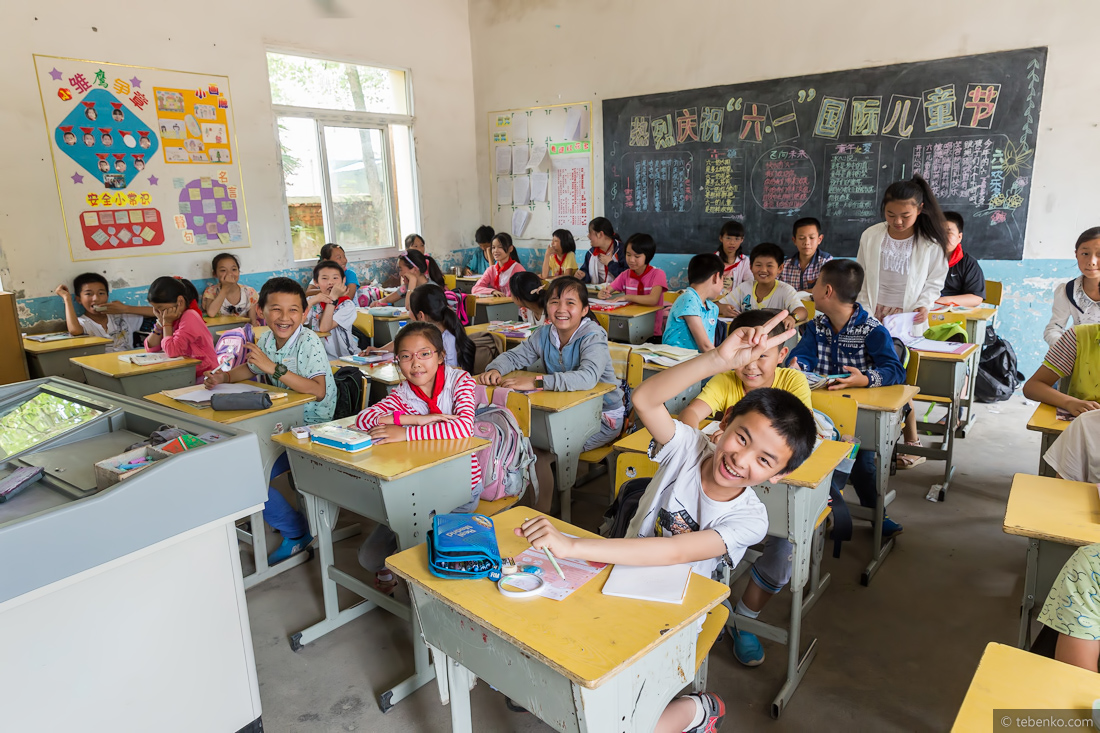 6
6Our appearance disrupted the lesson because the first one who rushed to take a photo was the teacher.
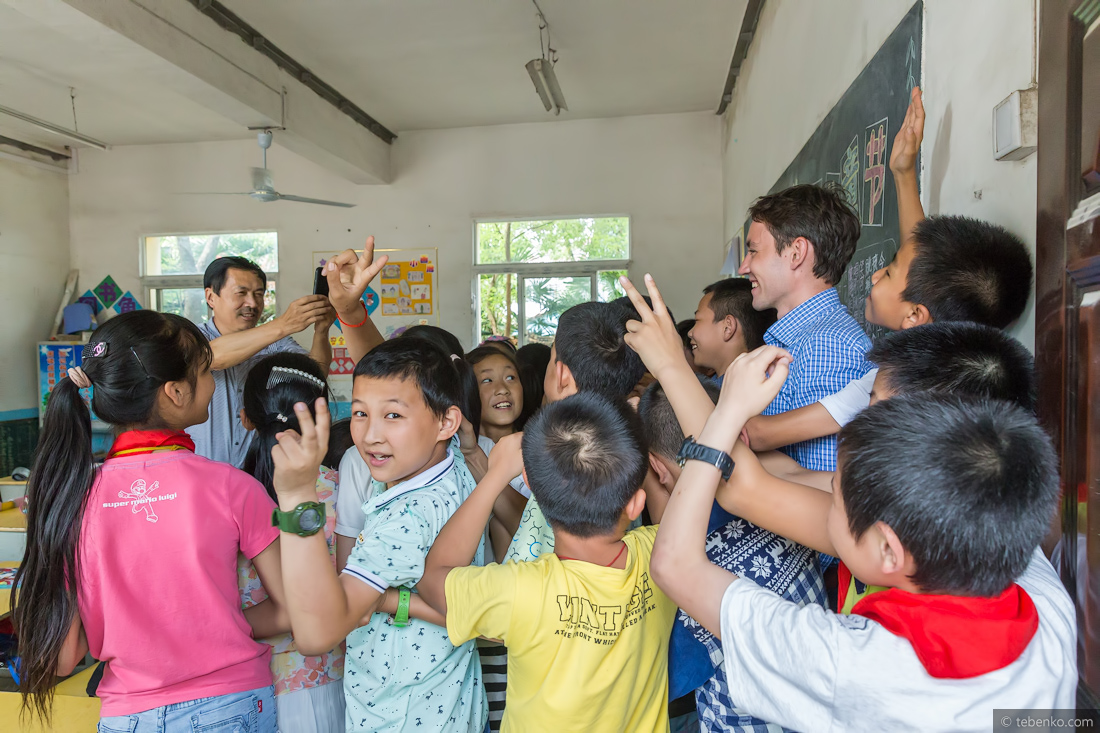 7
7Usually there are two blackboards in classroom. They say that one is for children, and the other one is for teachers’ scrawls.
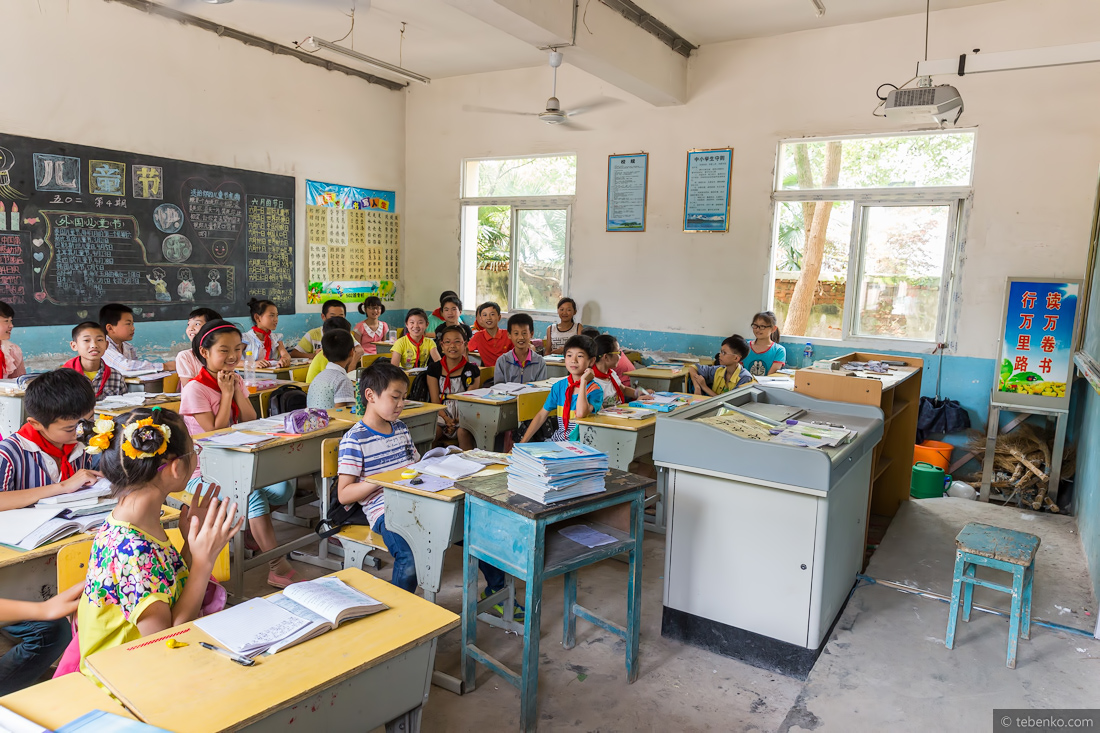 13
13Pupils can take book from the library but since there are more interesting things to do at home they read on the spot in the cheerful company.
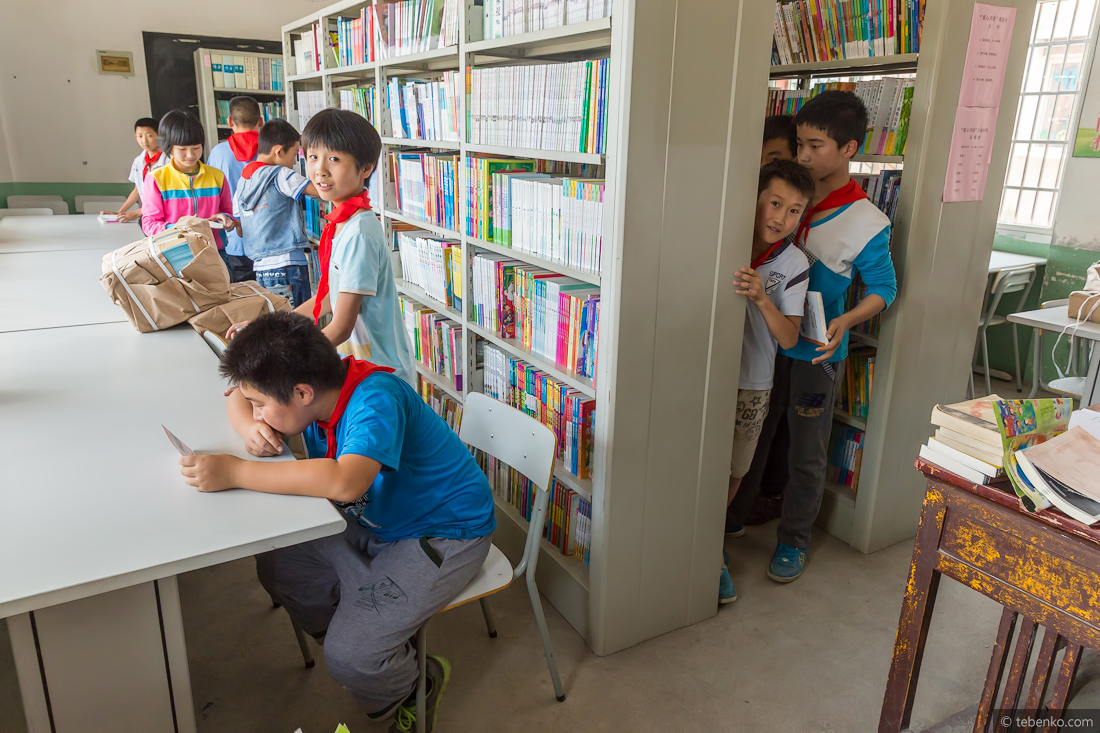 18
18As for the teachers. Everything according to the communist canons out here. Teachers staff is formed by the good old distribution of graduates. Future teachers have to pass exams, results of which define their fate. Will they work for decent wages in a big city or raise rural education on a motorized bicycle. It is not democratic, but practical. Therefore professional and highly qualified teachers can work even in rural schools as well.
Teachers’ common room:
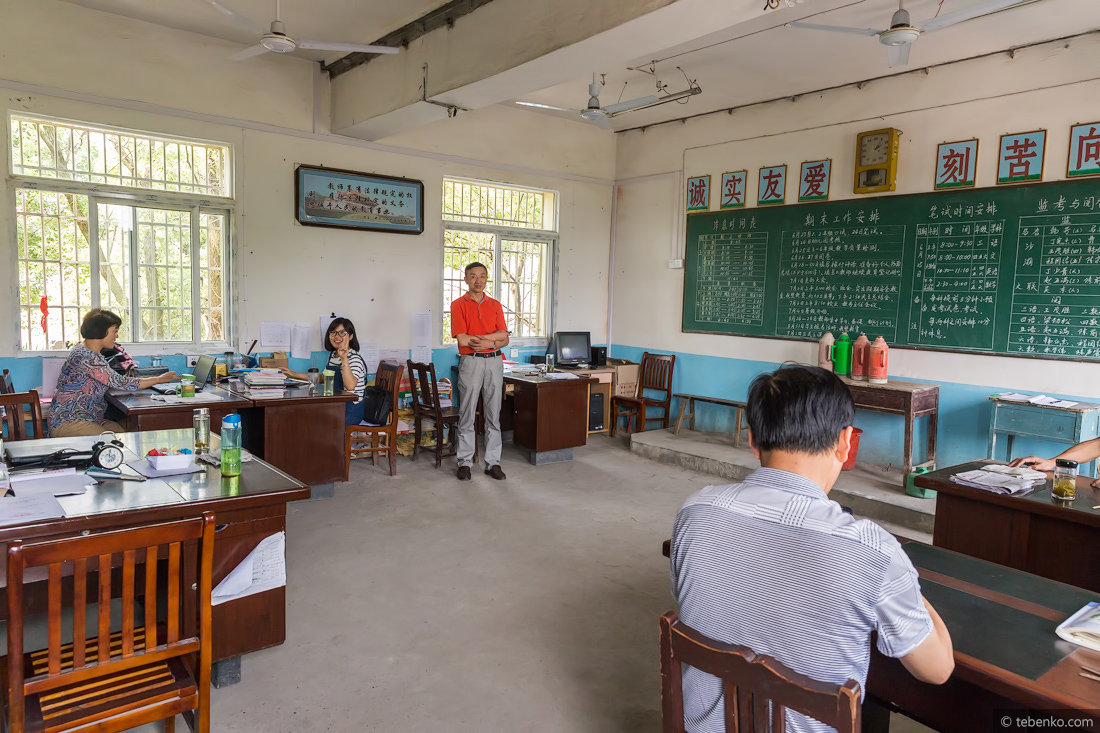 20
20Principal doesn’t decide independently what teachers to hire and what not to. If the teacher fulfills his duties poorly the only thing that principal can do is to file a complaint to the district educational department saying: «So and so, comrade Lee fulfills his duties negligently dishonoring the high status of teacher and member of the Communist Party of China». Then poor guy would be re-attested and probably fired.
But even without this Chinese teachers take professional tests annually in such a way government filters out those who have lost skills or interest in teaching. Every 3 years teacher can be promoted. State may transfer him to another school even to other settlement, but rarely in a other province. Average monthly salary of a teacher in a small town is 2.000 yuan (about $320). It is small so teachers happily accept gifts from parents. In larger cities teacher’s salary can go up to 20.000 yuan ($3.000). This is a lot, but with gifts it’s even better.
Next teachers’ common room:
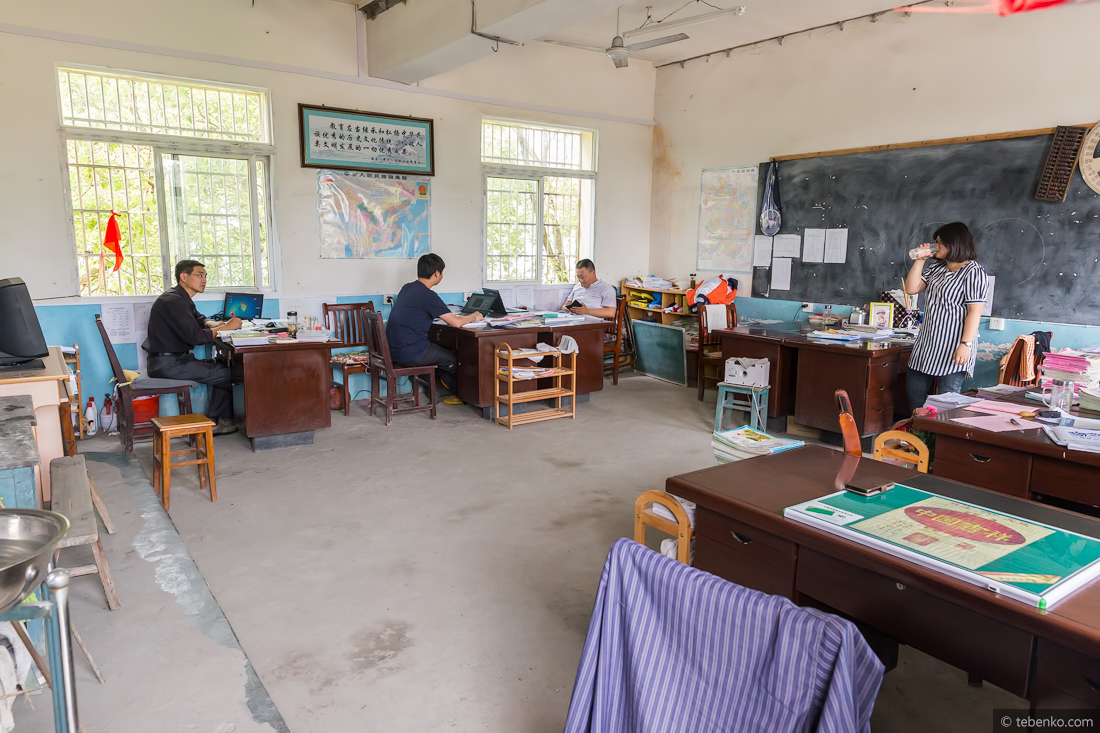 21
21And here’s the principal himself. Against the red banner he looks more like director of a soviet factory:
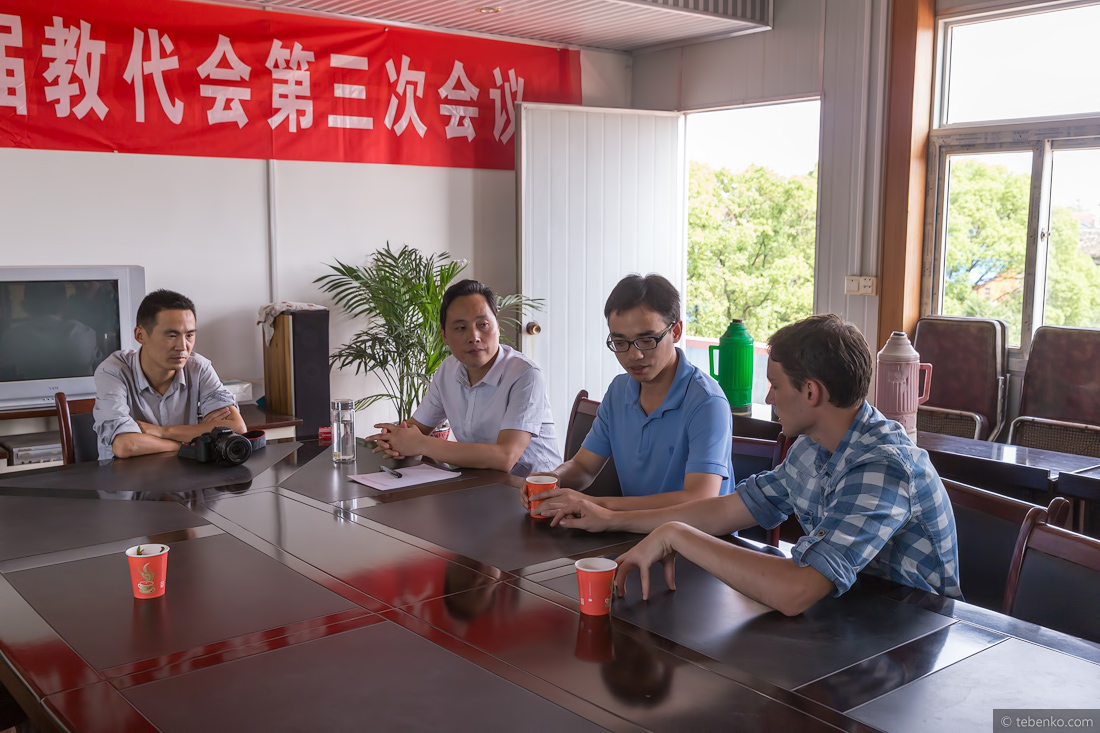 28
28At this point elementary school tour was over for us. No afterparty, no informal feasts or other entertainments we weren’t offered. Probably that’s because it’s primary school, let’s go to middle. Next point — Wanhe middle school in the same village. Here only 500 pupils are studied and not in the same classroom as you might think but in total.
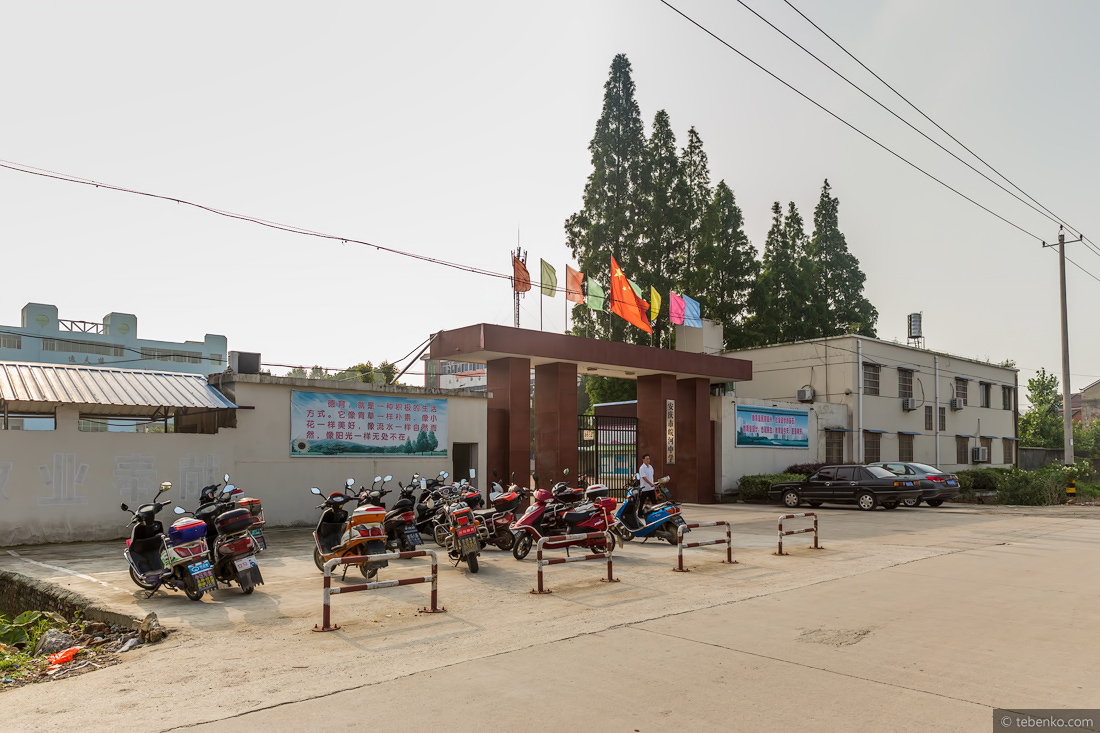 30
30Yes, Chinese middle schools have dormitories, separate for boys (left) and girls (right). They are built for children from neighboring villages for them not to spend much time on daily commute. And they can go to their village on weekends to help parents about the house.
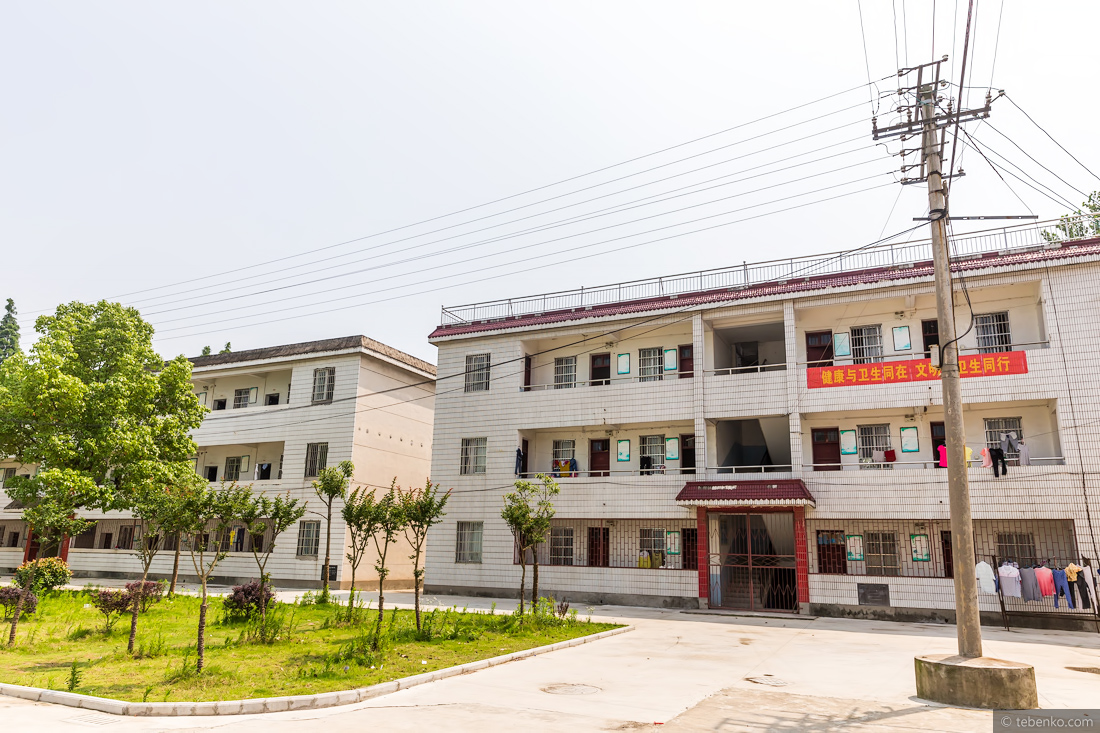 34
34Dormitory staying isn’t free. Annual fee is about 1.000 yuan ($150). In large cities — 2.000-3.000 yuan, depending on the number of students wishing.
Gifted students can live in dormitories for free. The level of giftedness is determined by the school. Often large/urban schools lure talents from the village. The purpose of this aggressive transfer policy is to get more grants and funding. The more intelligent students are in school the more of them will be accepted in college. Therefore, school falls in the category of successful and stays supported by the state as every other (communism after all), but a little bit better. So it happens that one gifted pioneer may be «hunted» by several schools.
The money to build our school was donated by Hong Kong billionaire Show (逸夫). He turned out to be not a greedy dude and has built a lot of schools throughout China.
Another small recently built building. So 3 buildings for 500 students in total.
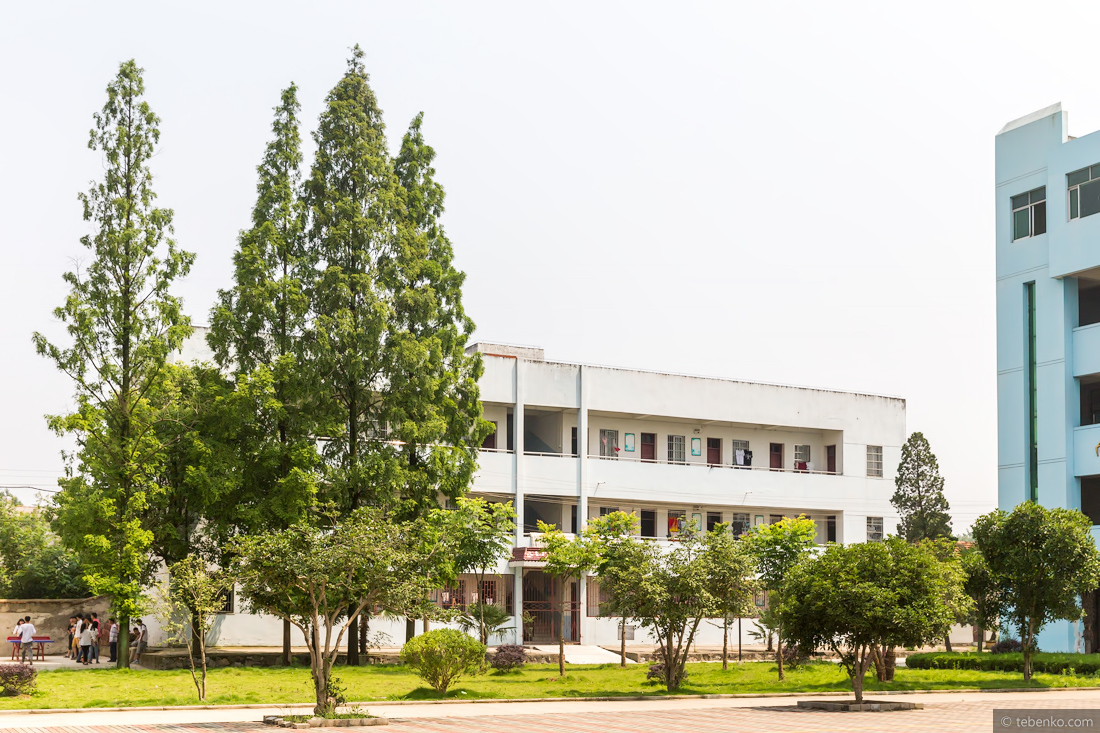 35
35A typical lunch in a Chinese school. Note the metal sticks. The thing is the Chinese woods can hardly provide traditional disposable sticks for 1,5 billion people. They throw away around 80 billion pairs annually. Therefore, state institutions and restaurants are switching to metal sticks. At this rate they are going to use forks and spoons soon enough.
 39
39If the principal is sent from another city, he will be provided with an accommodation until he buys a house for himself or a new principal takes over after him.
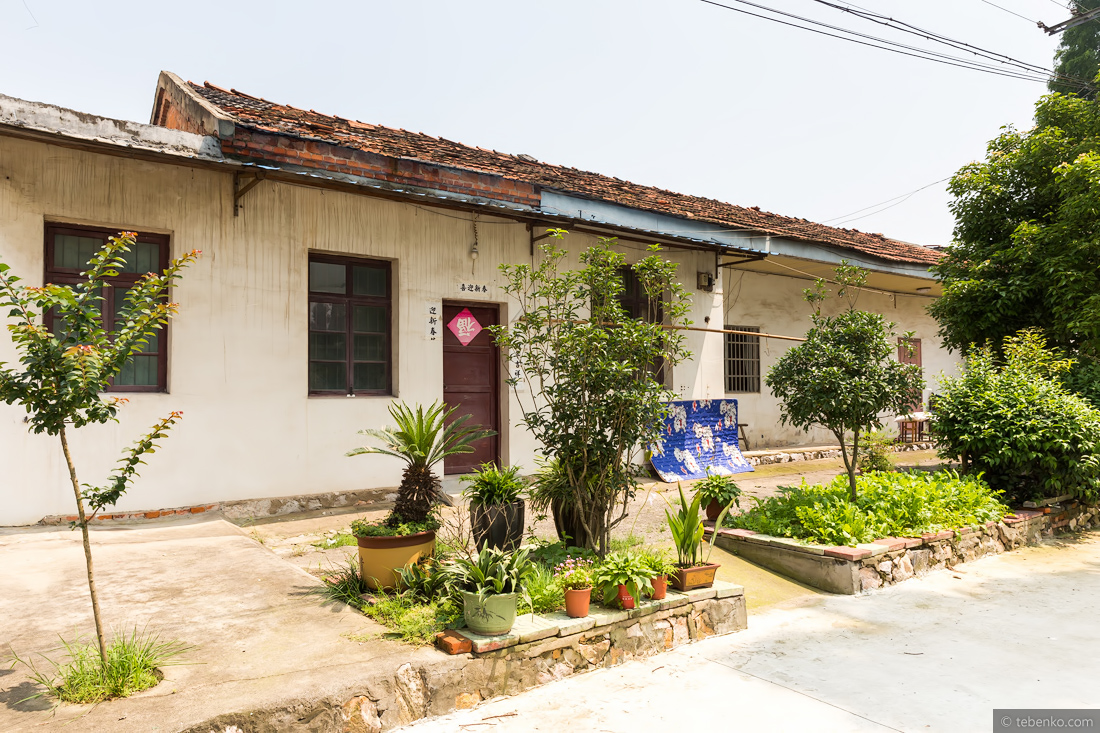 41
41Our conversation is going in a constructive and friendly atmosphere. Excellent photo for the first page of school newspaper with the caption «China and Ukraine — friendship to grow stronger!».
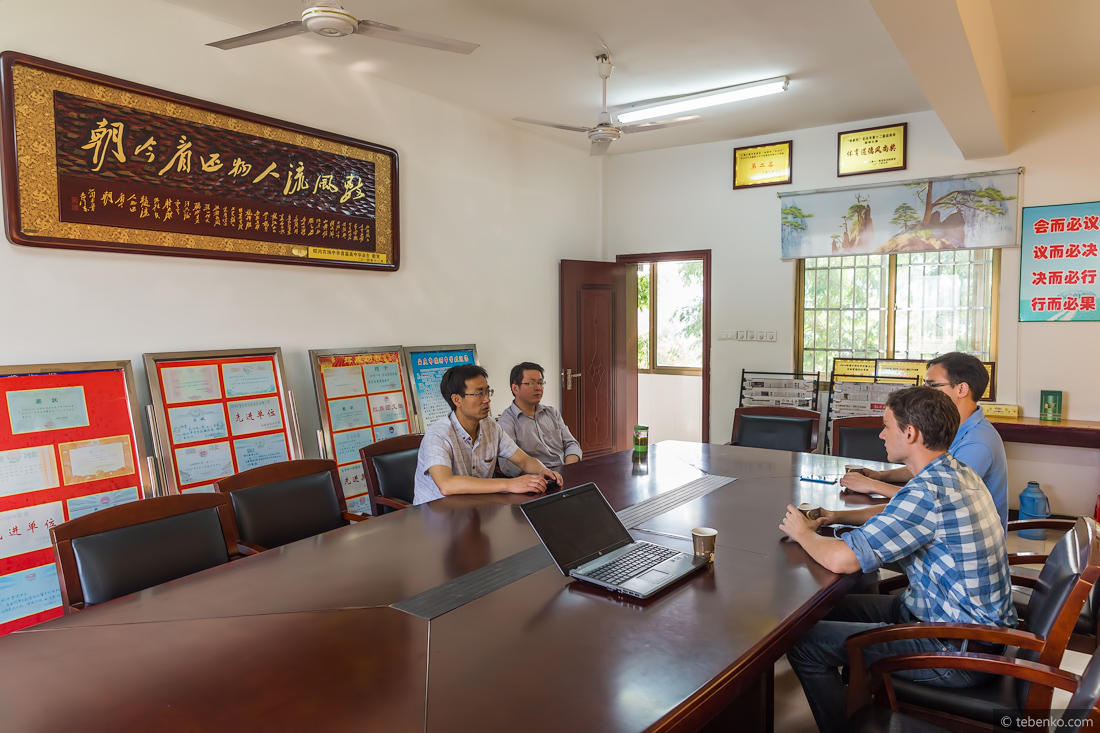 48
48An interesting detail — every teacher has this bottle of tea. Mostly they don’t go anywhere without them, perhaps, there is some kind of punishment for that.
Also during conversation we found out that the school has 70 teachers and only 2 females among them. Whether Chinese women don’t consider teaching to be prestigious whether on contrary it’s very prestigious and chauvinistic men don’t take in strong and independent women — couldn’t figure out. But we were told that recently number of female teachers is growing.
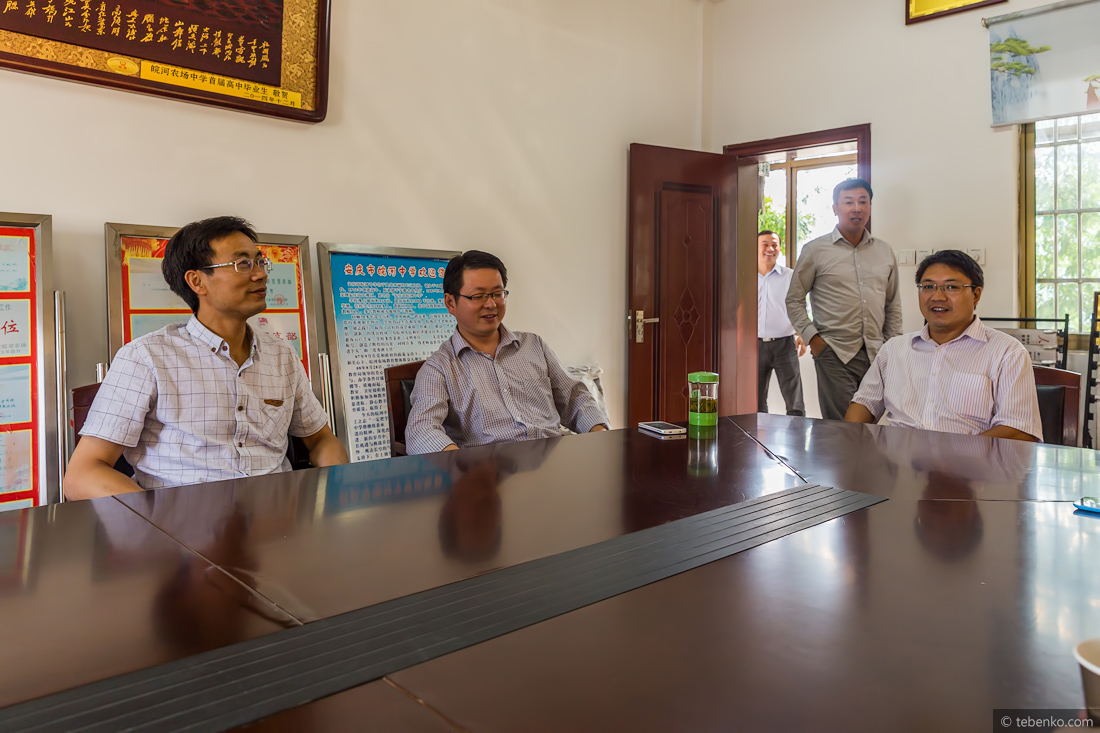 49
49A logical follow-up to the conversation was proposal to tell students about Ukraine, our trip and how we have sunk to this life. We happily agreed to tell about our motherland. Sure thing we fantasized a little — let them know all our astronauts!
 50
50The audience was quite mature — 9th grade, so we’ve discussed all theses at first to avoid any divergences.
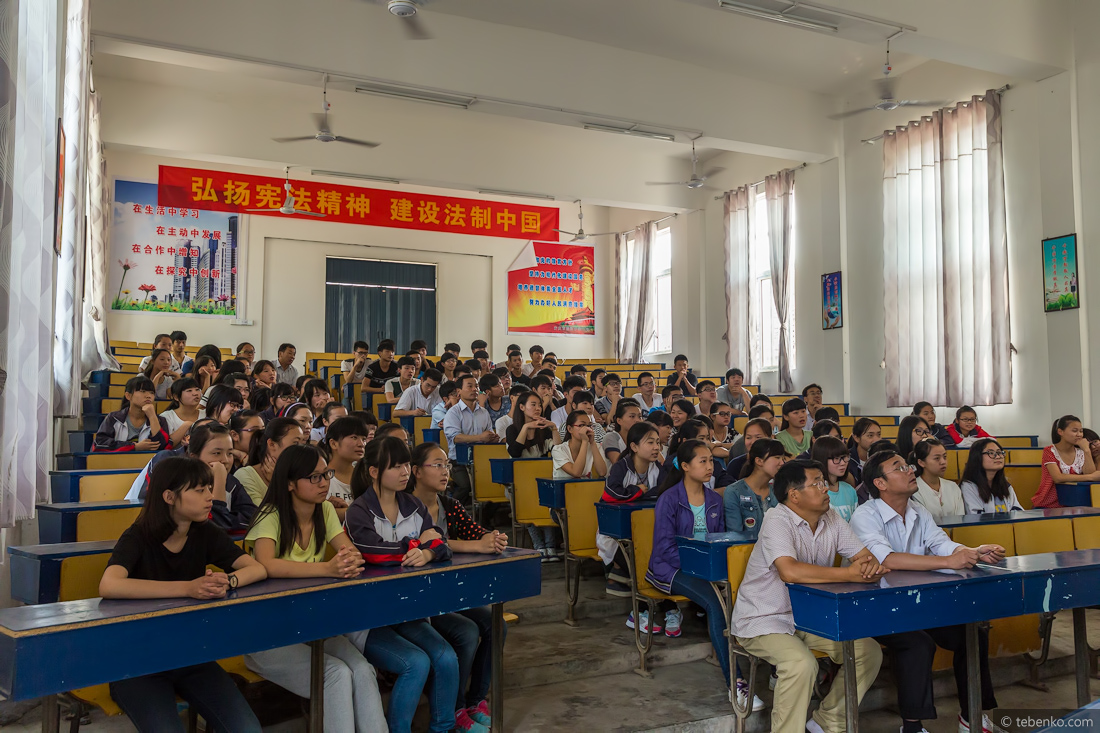 51
51Member of teaching staff. There is still fashionable to wear sandals with socks in China, women after 35 love it.
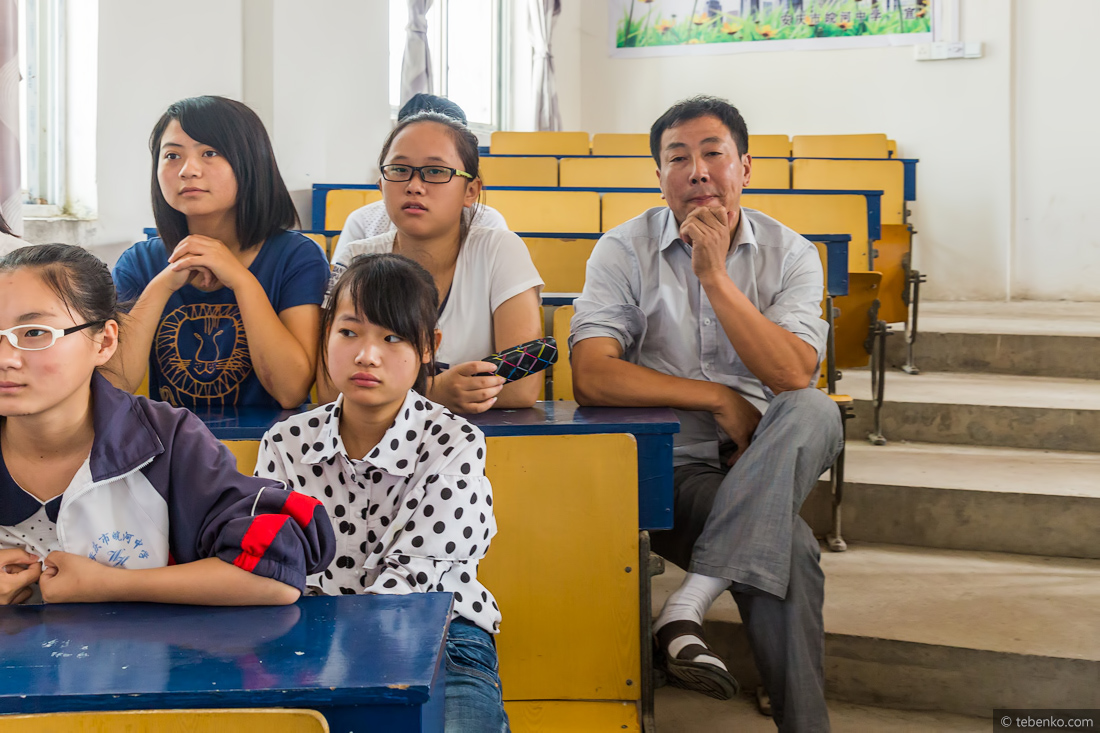 52
52Because our knowledge of English doesn’t allow us to use beautiful terms freely, especially economic, we asked our Chinese friend for help.
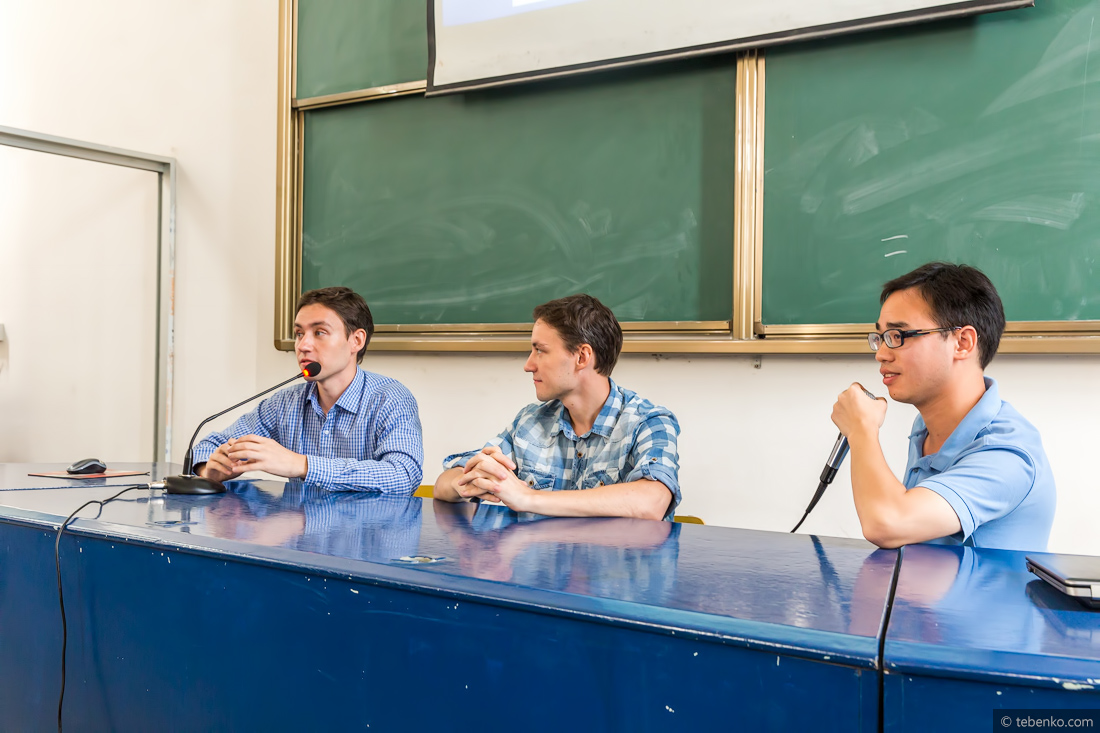 56
56The principal realized that he was losing popularity and invited us to play table tennis, almost a national sport:
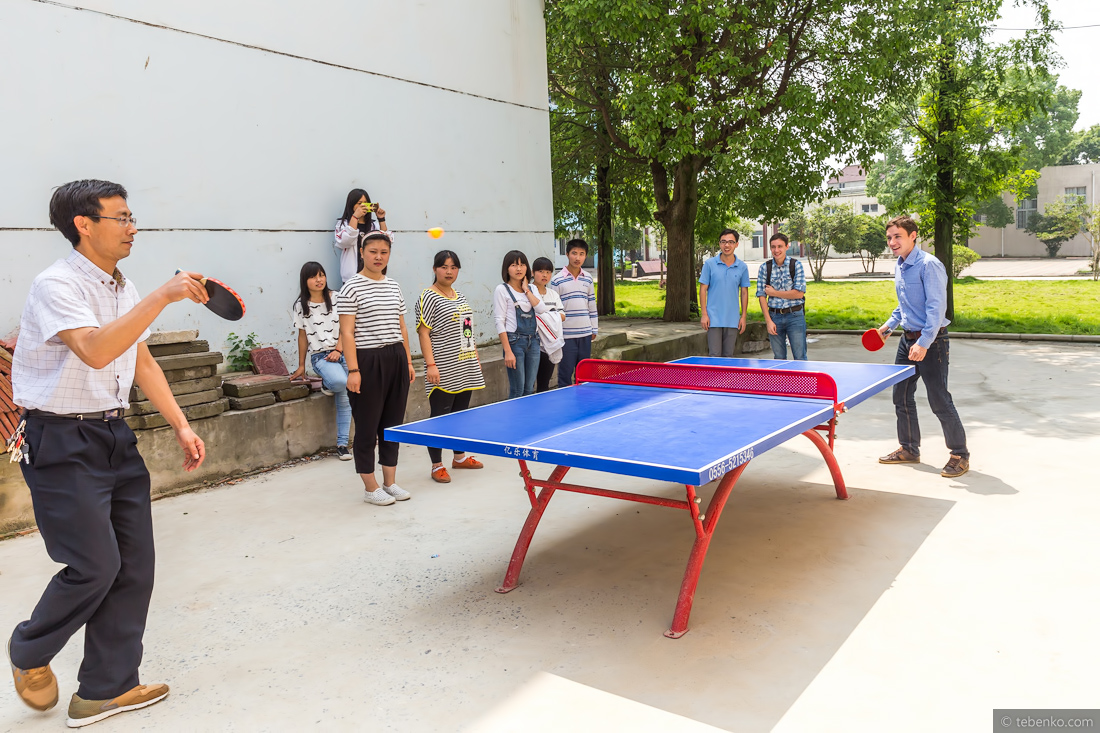 64
64They keep records of working hours with fingerprint check-ins and check-outs. If you went home without checking out, you would work overtime.
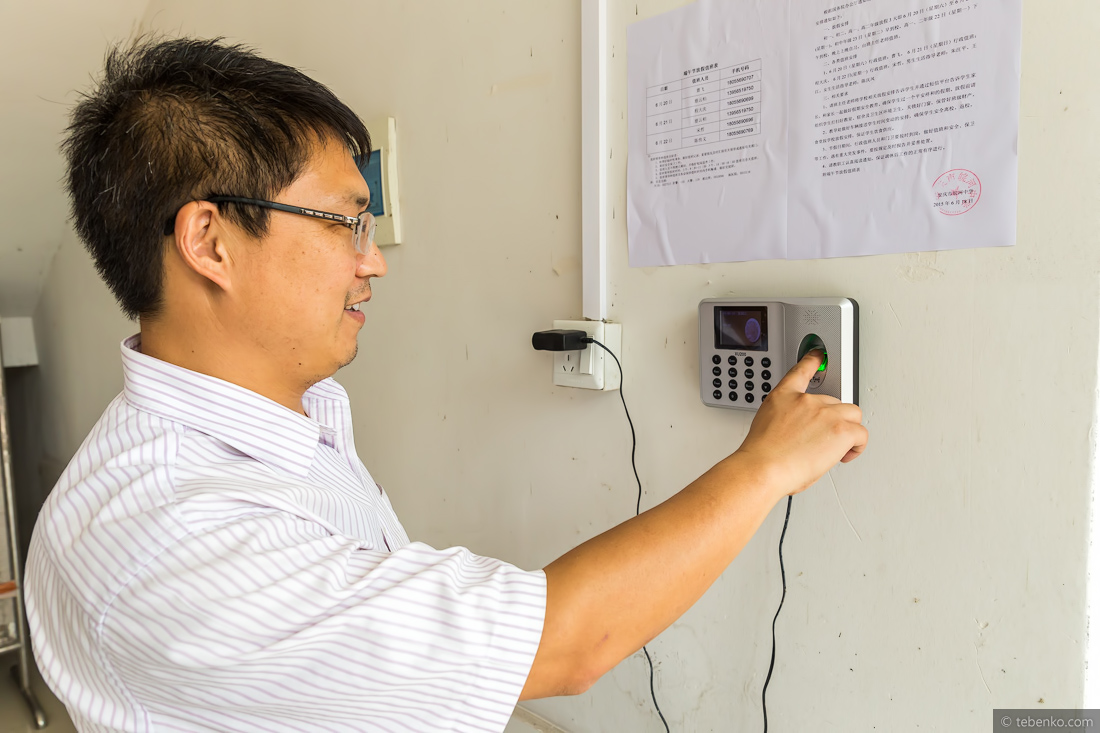 66
66School teaching staff invited us to continue conversation in the atmosphere of informal communication:
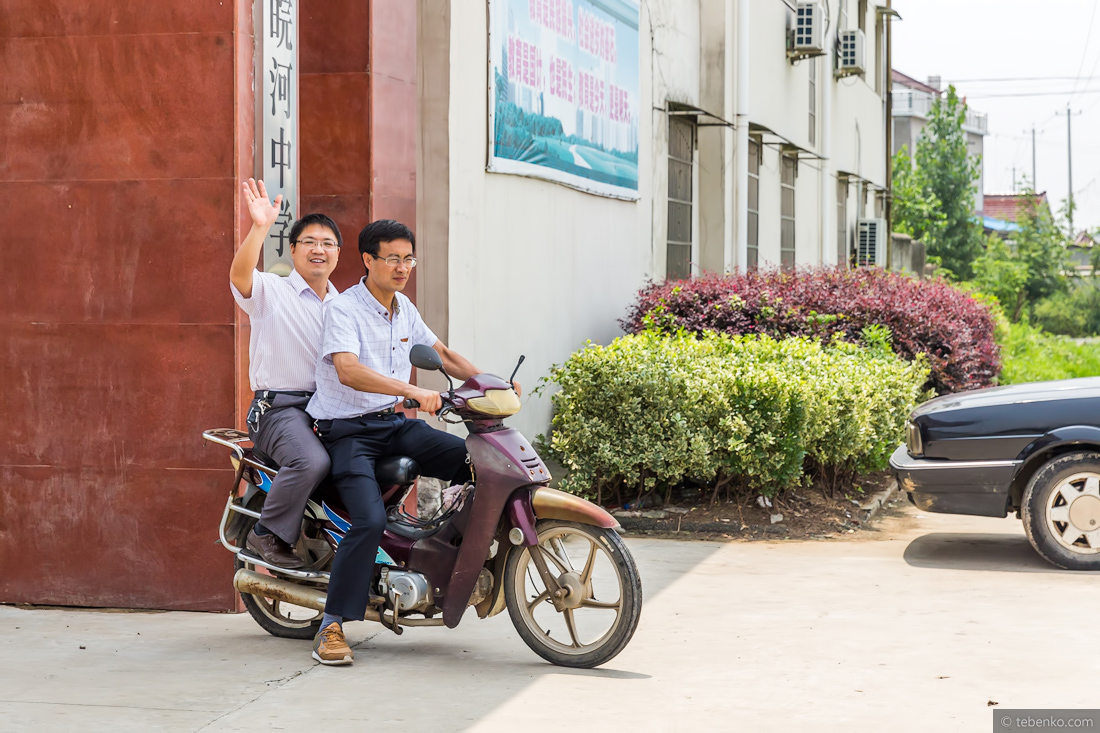 67
67We’ll make a separate post about food, but here at such a round table usually large and friendly Chinese companies are gathered:
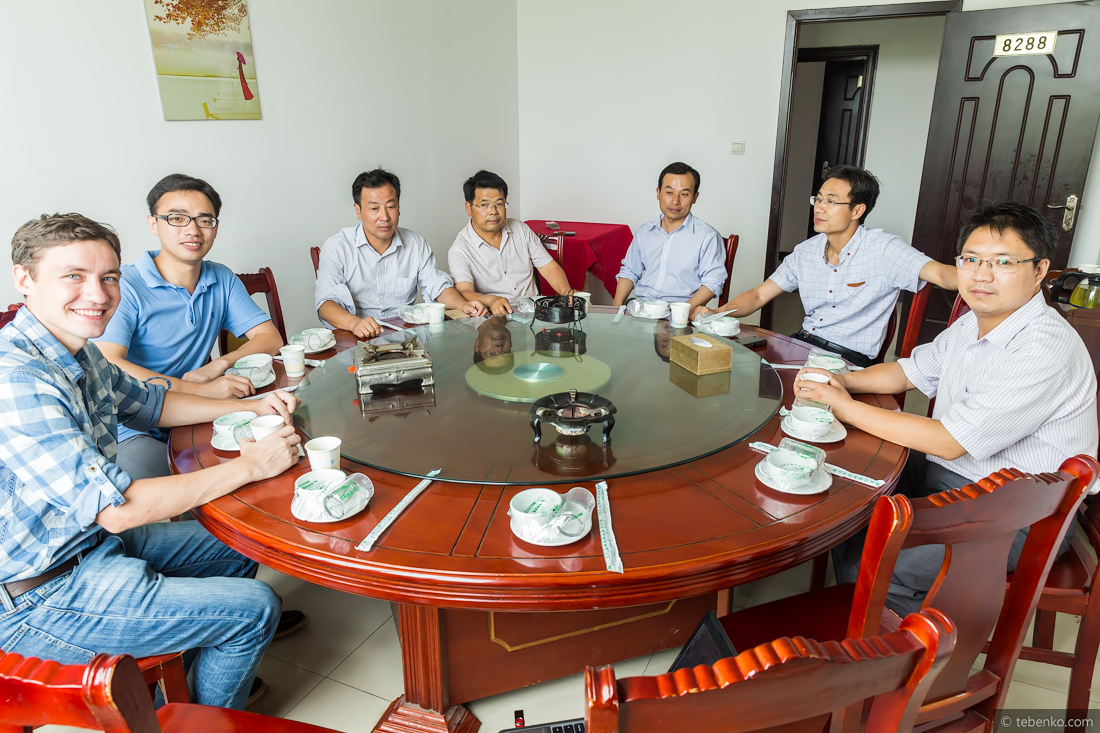 68
68At the end we’re going to tell you about uniform of Chinese students. Usually they wear tracksuits. The Chinese have decided that comfort and practicality are more important than style:
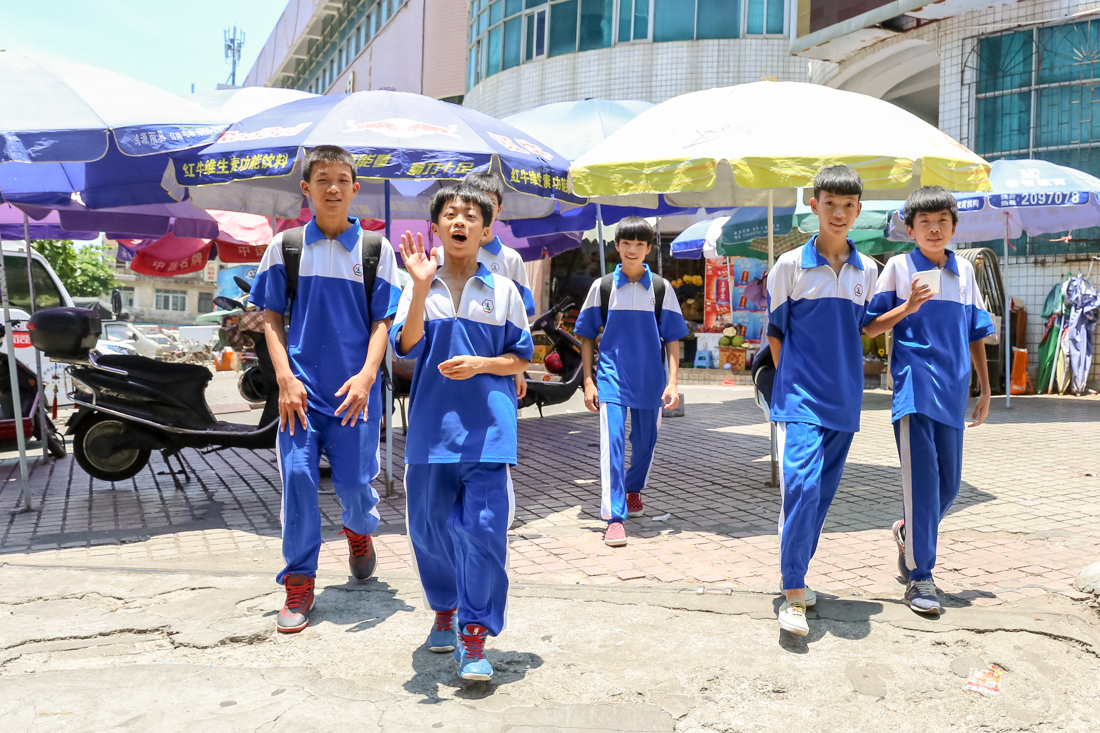 70
70
